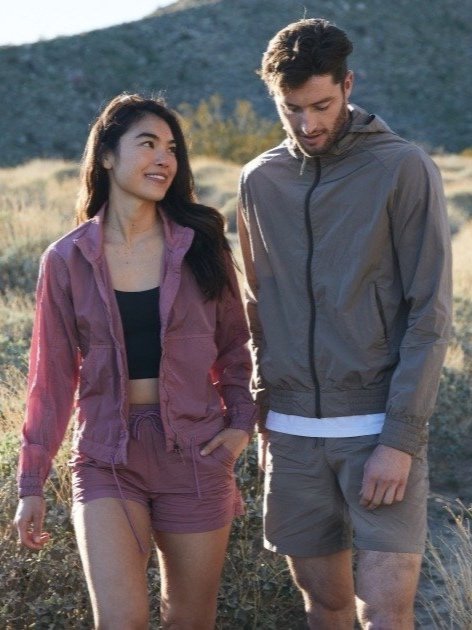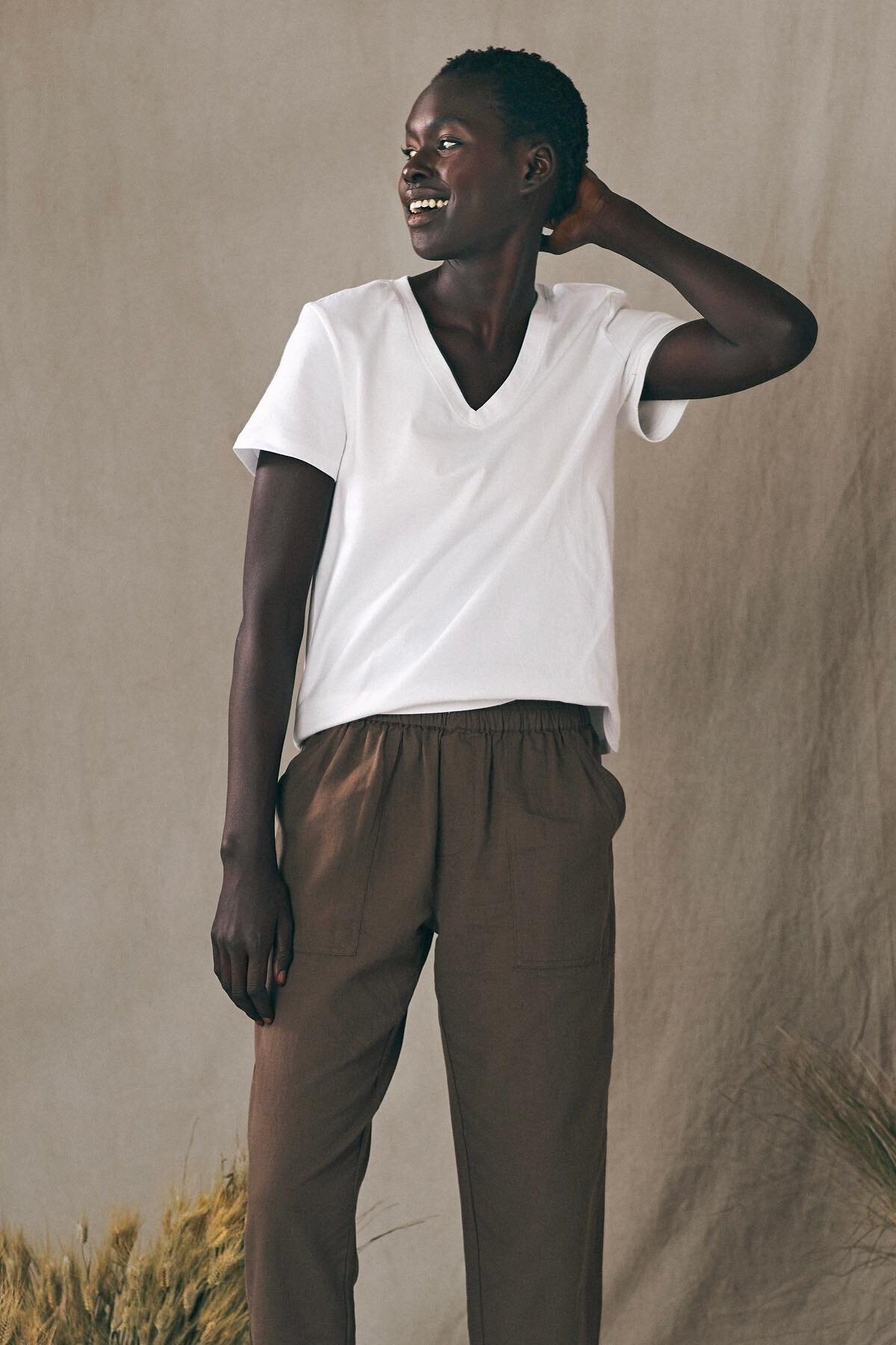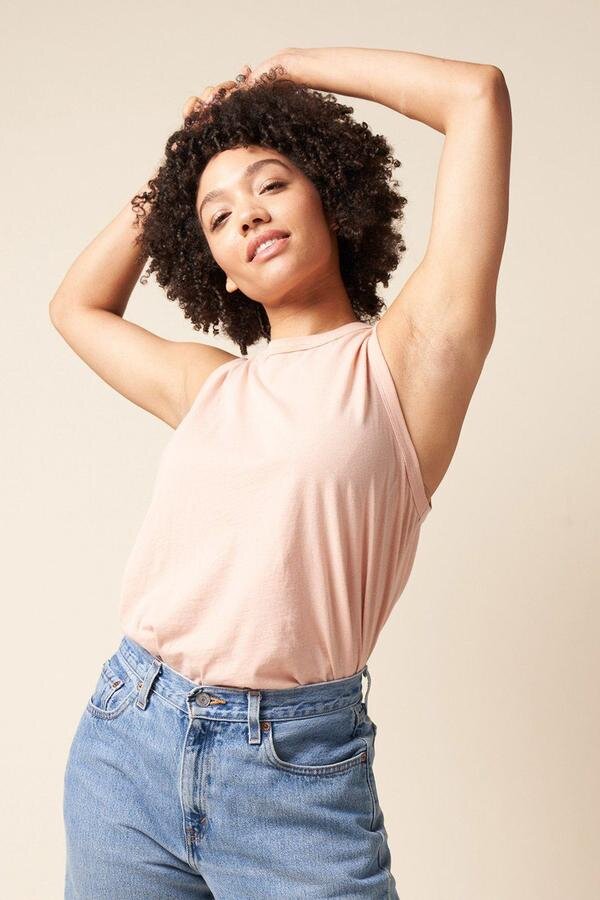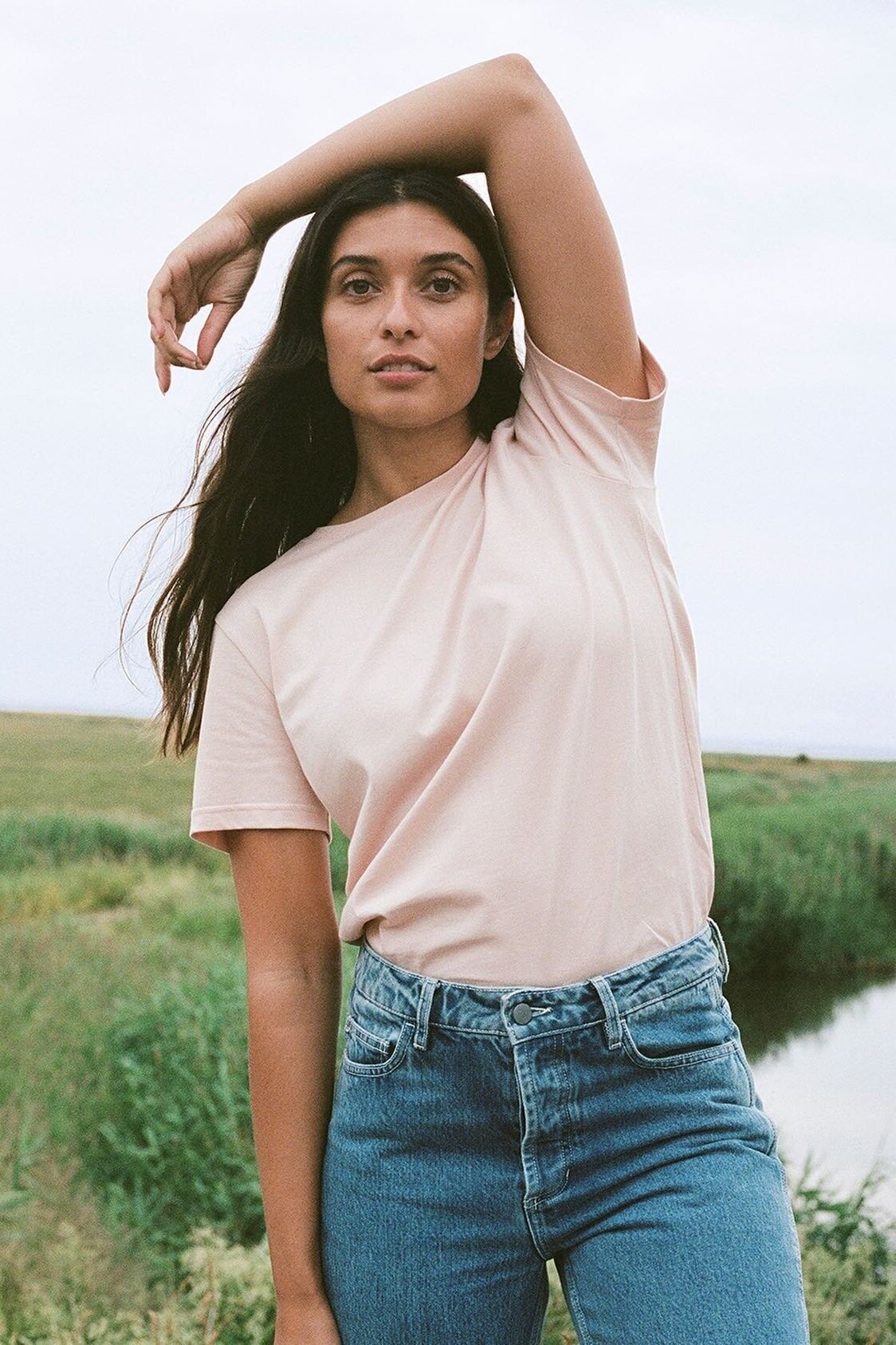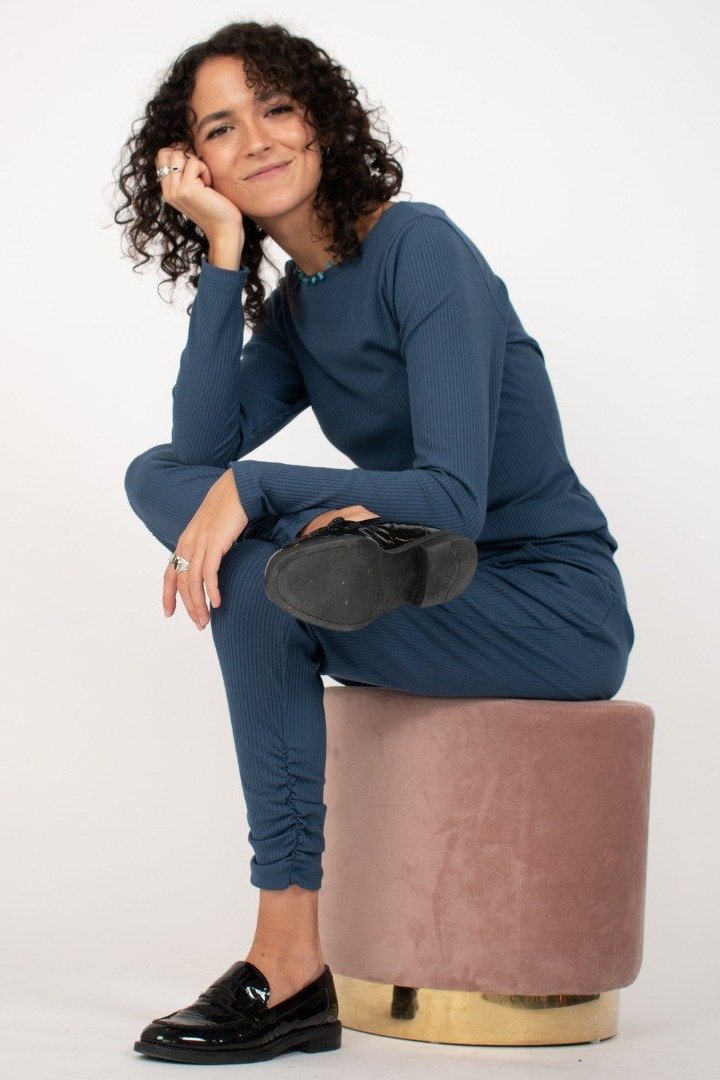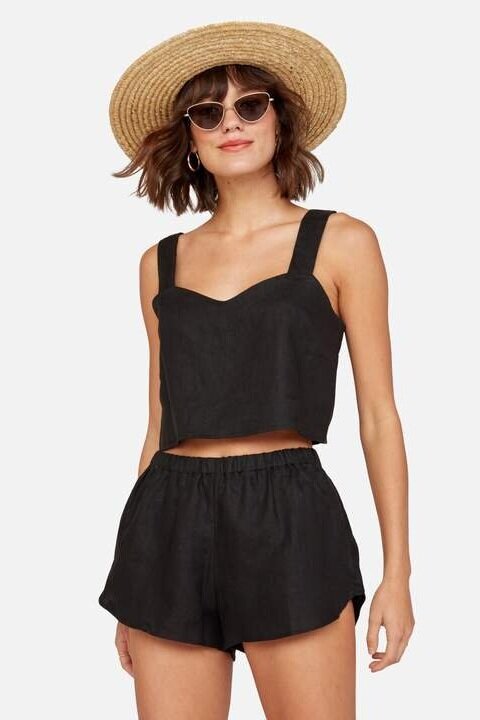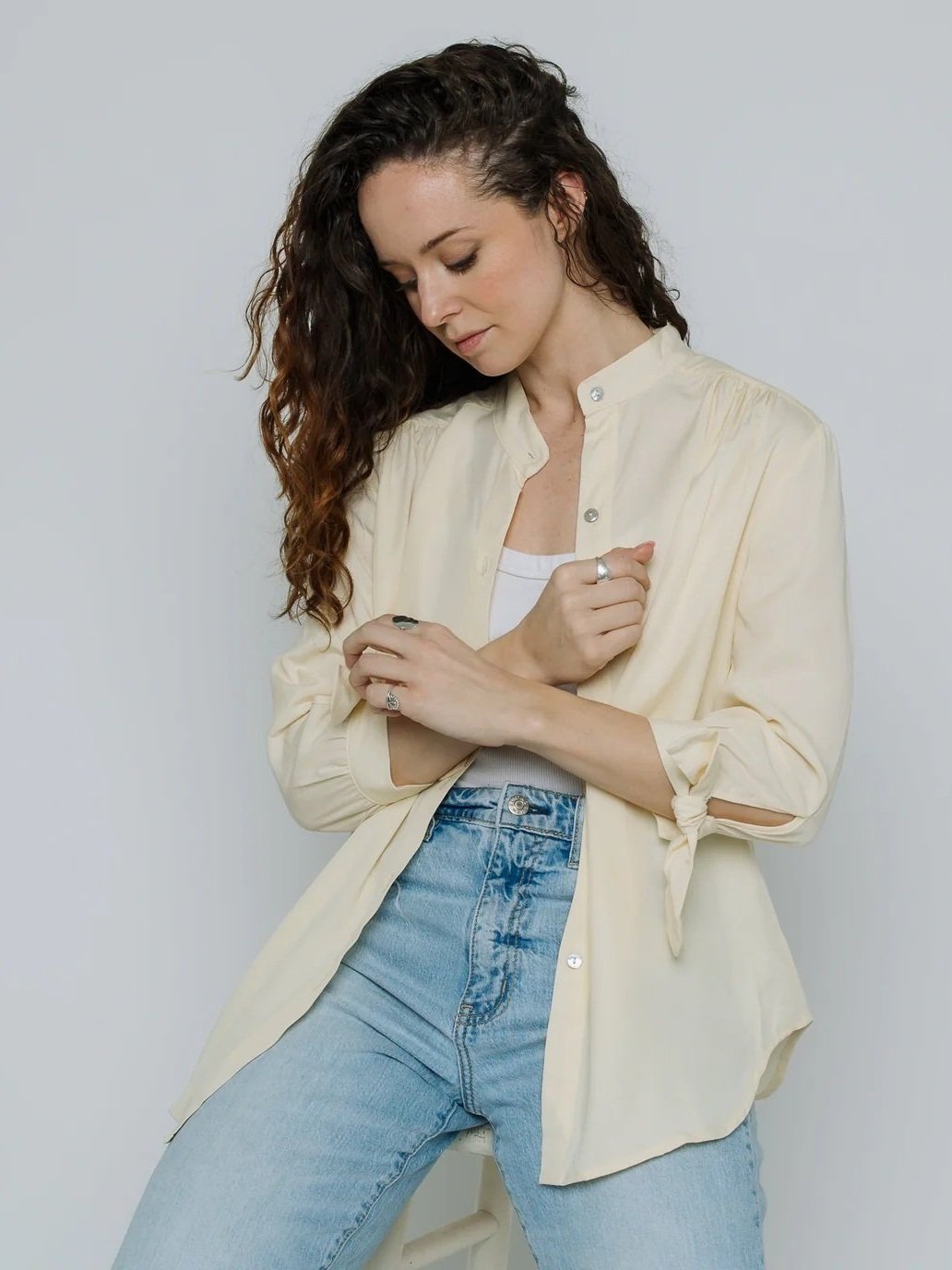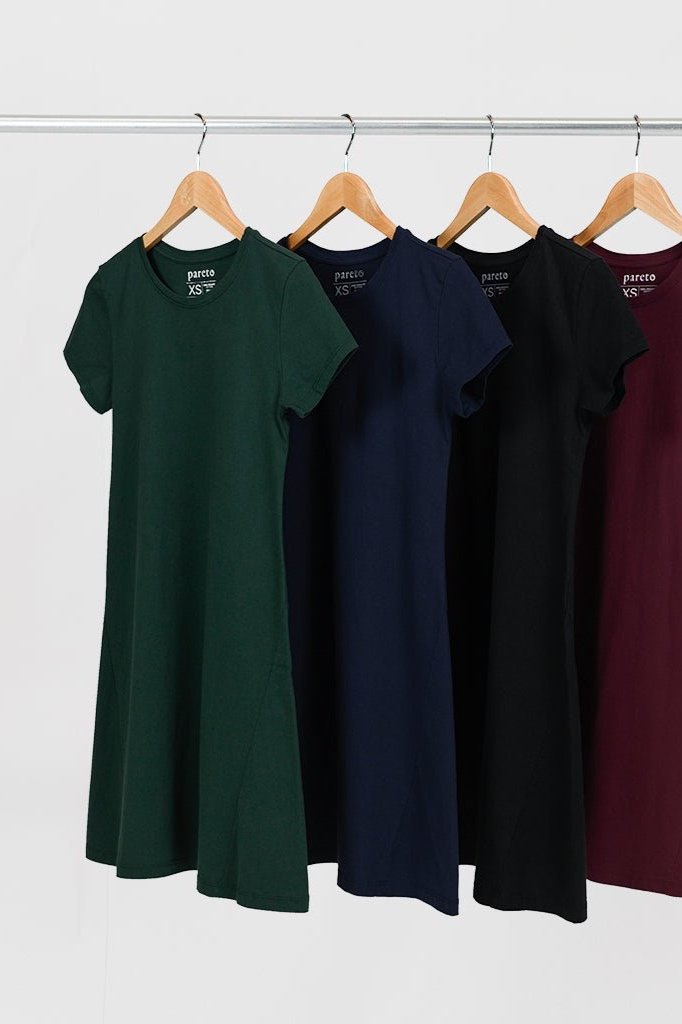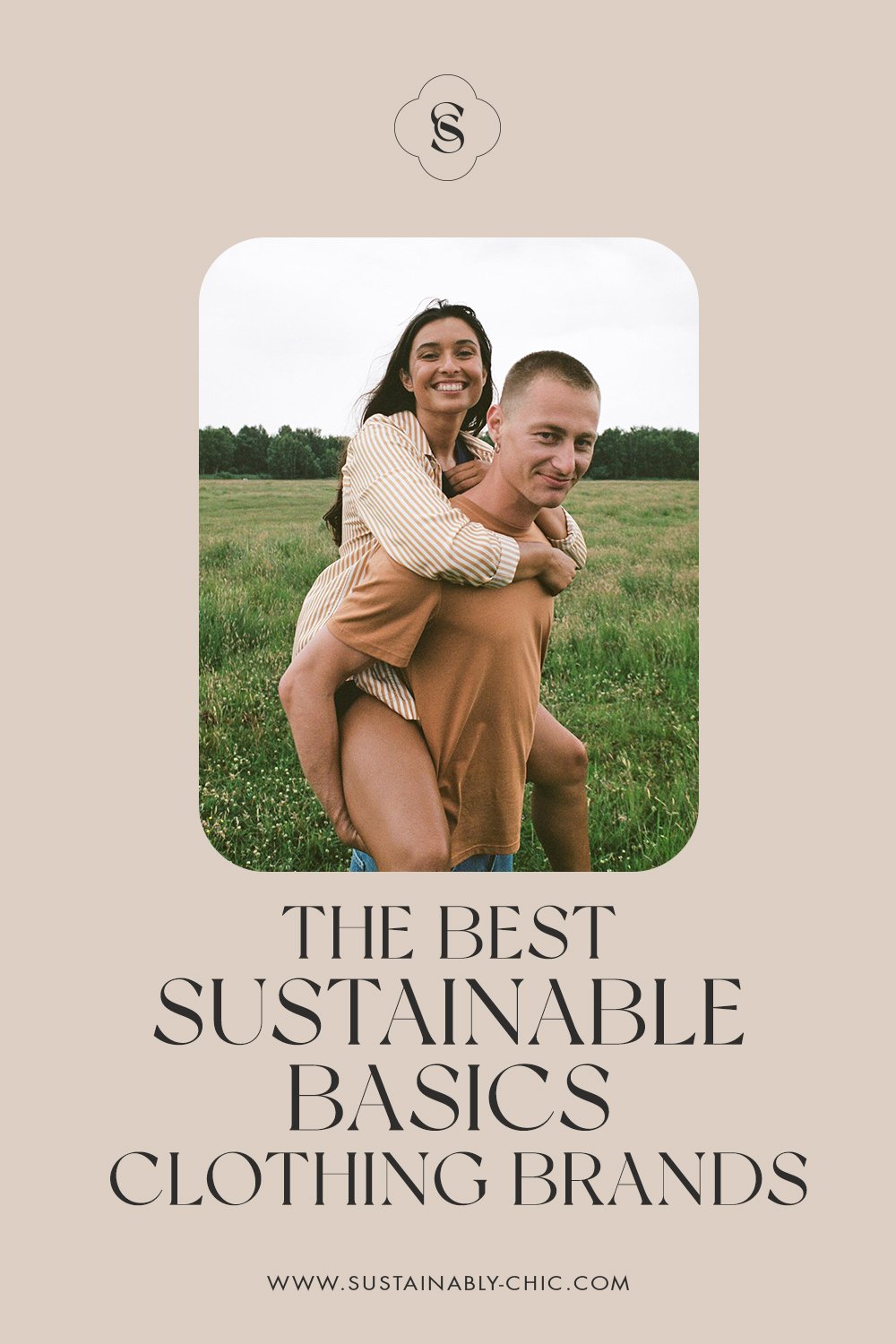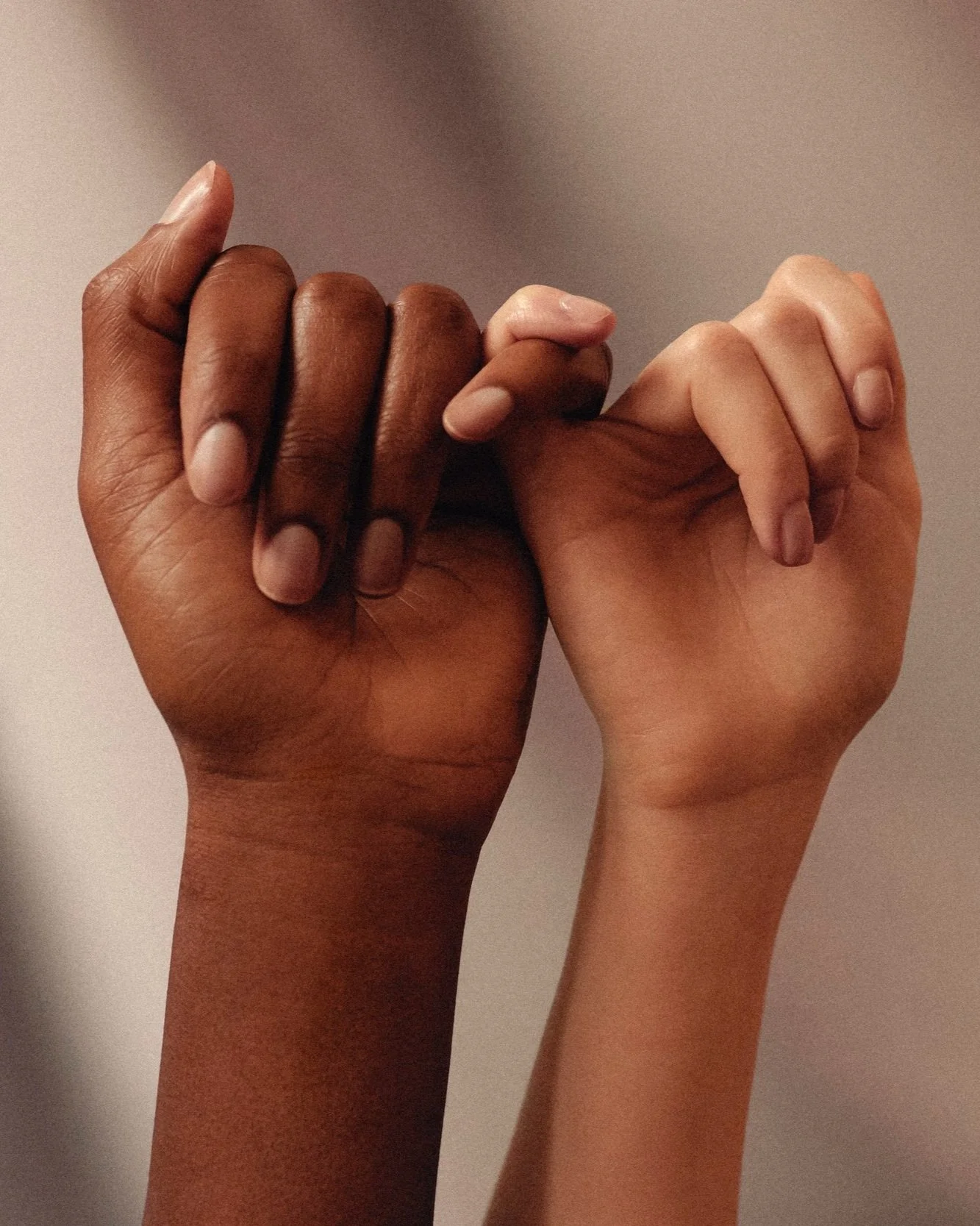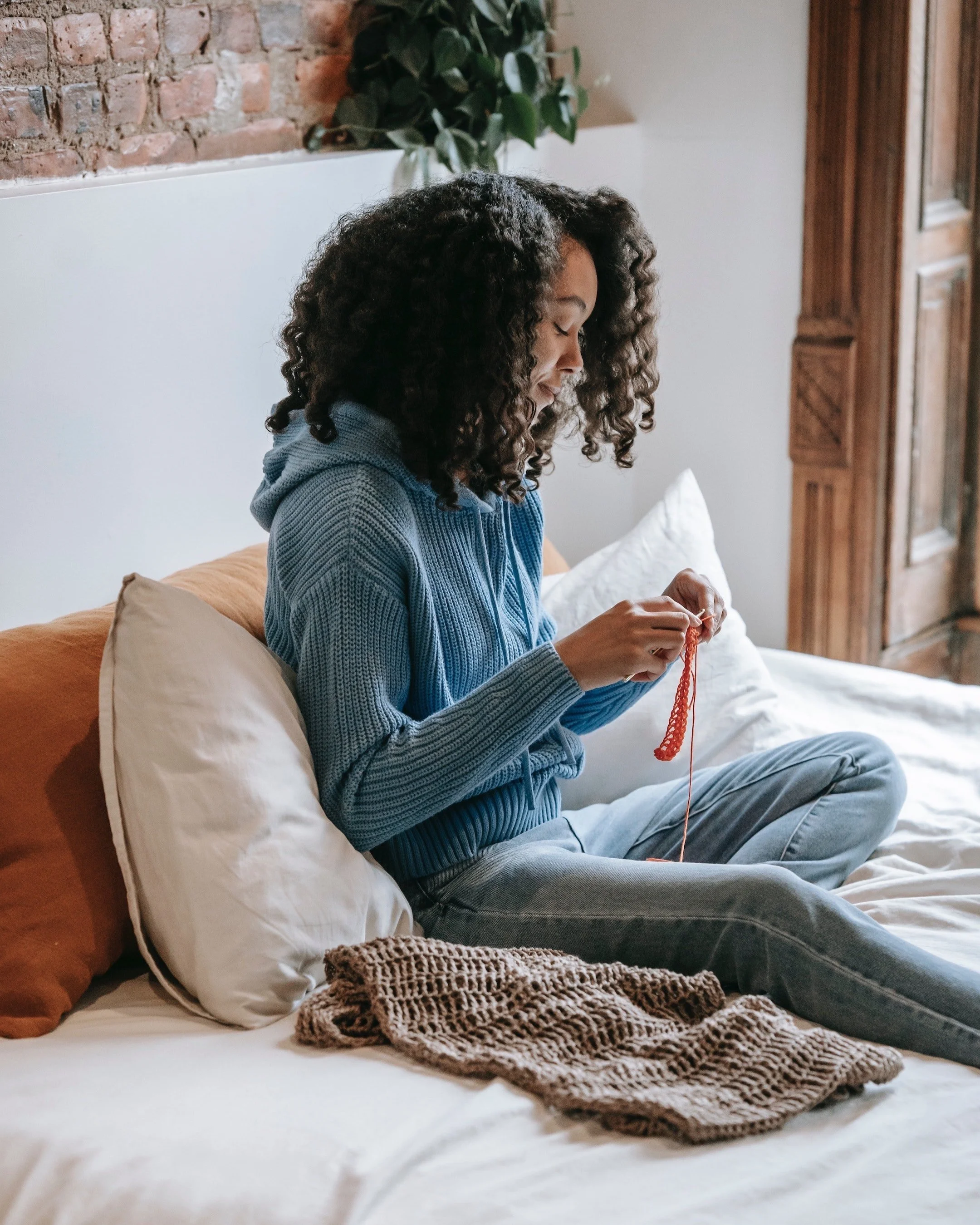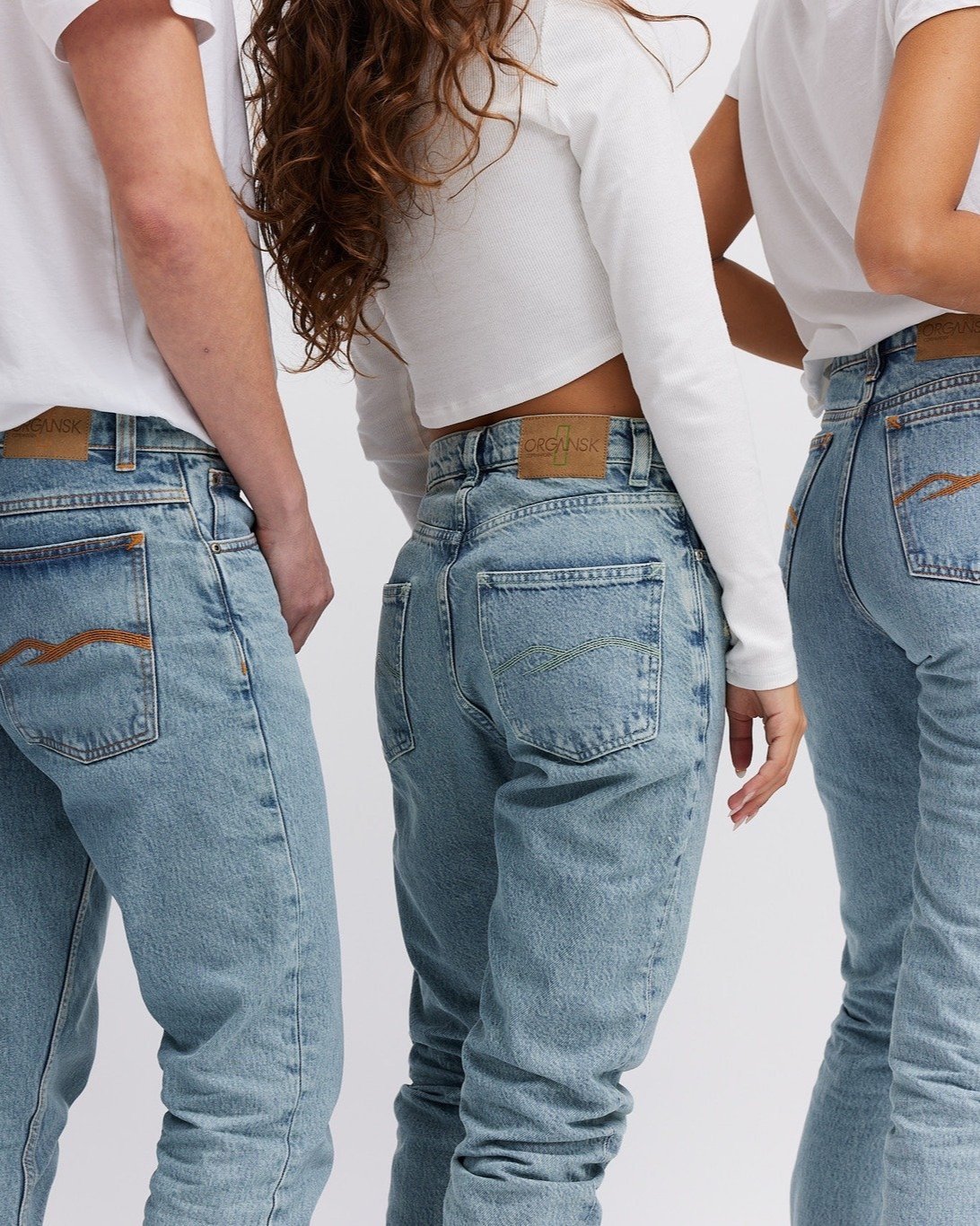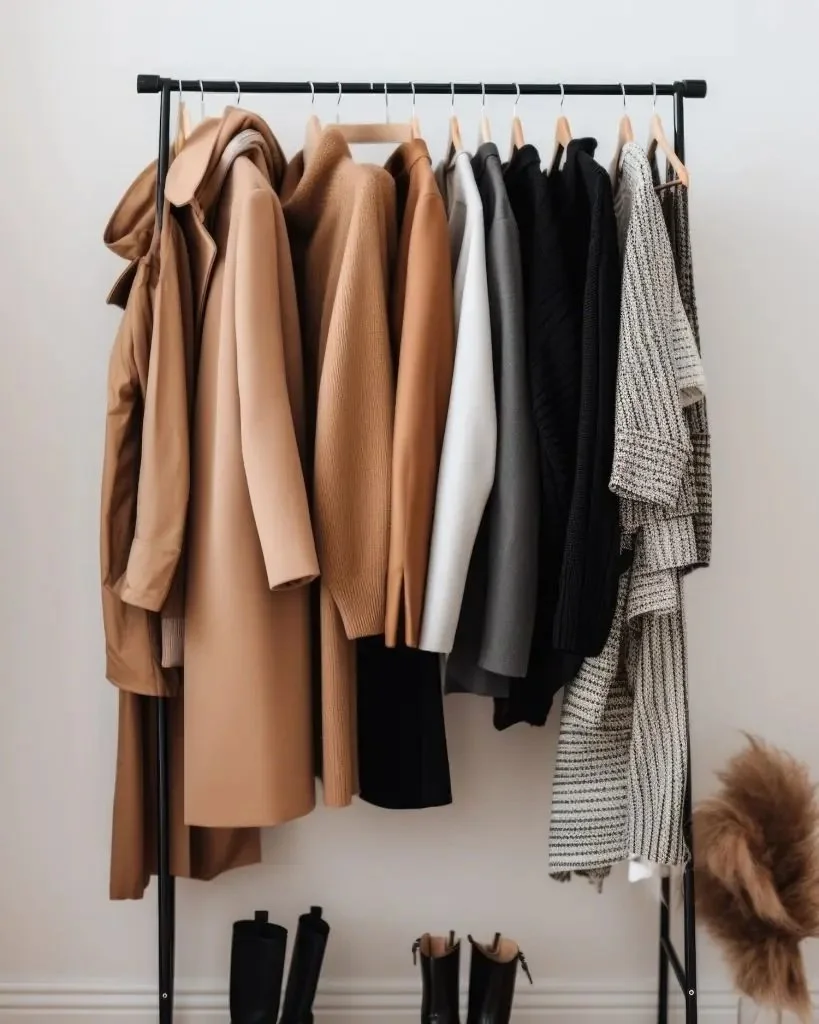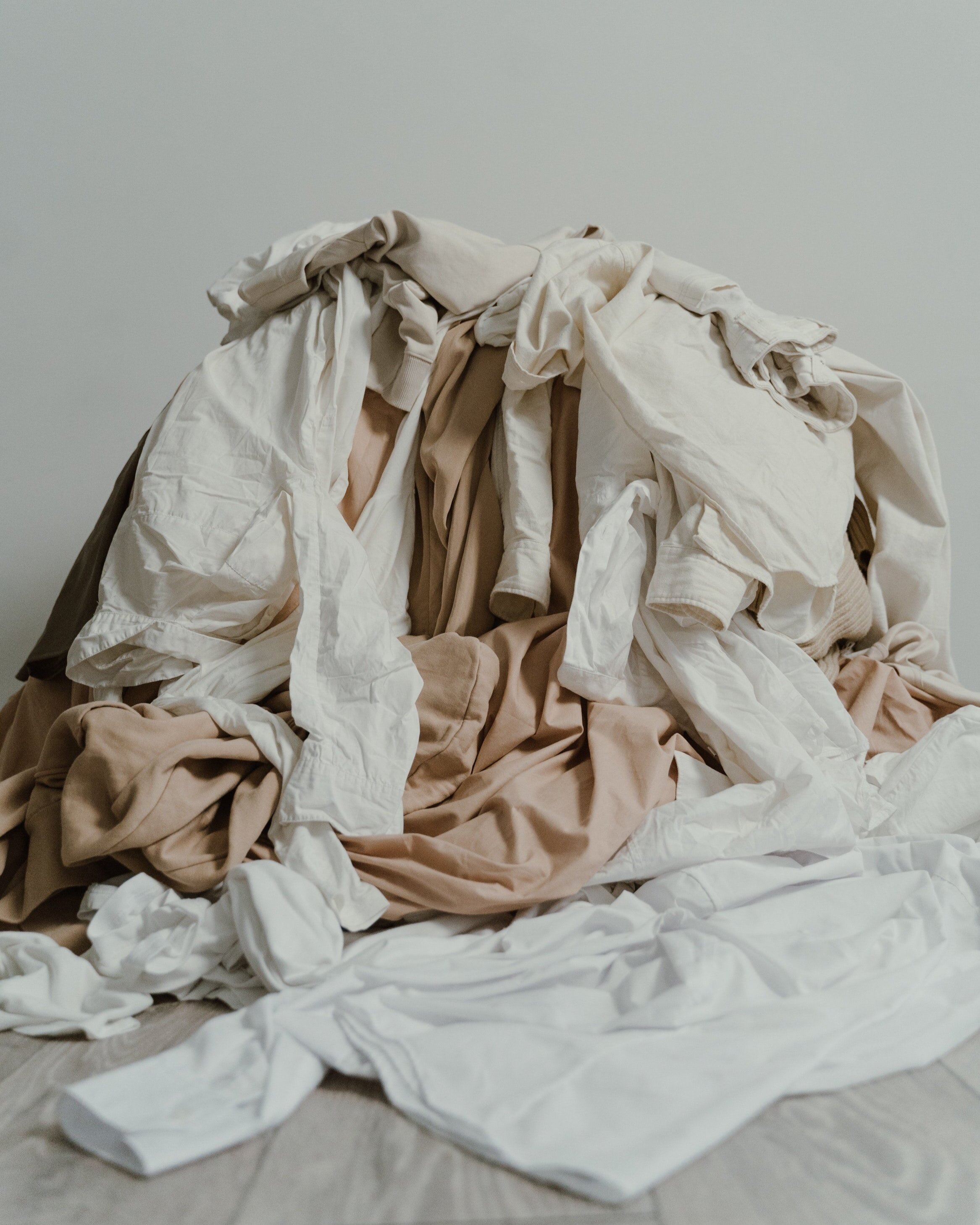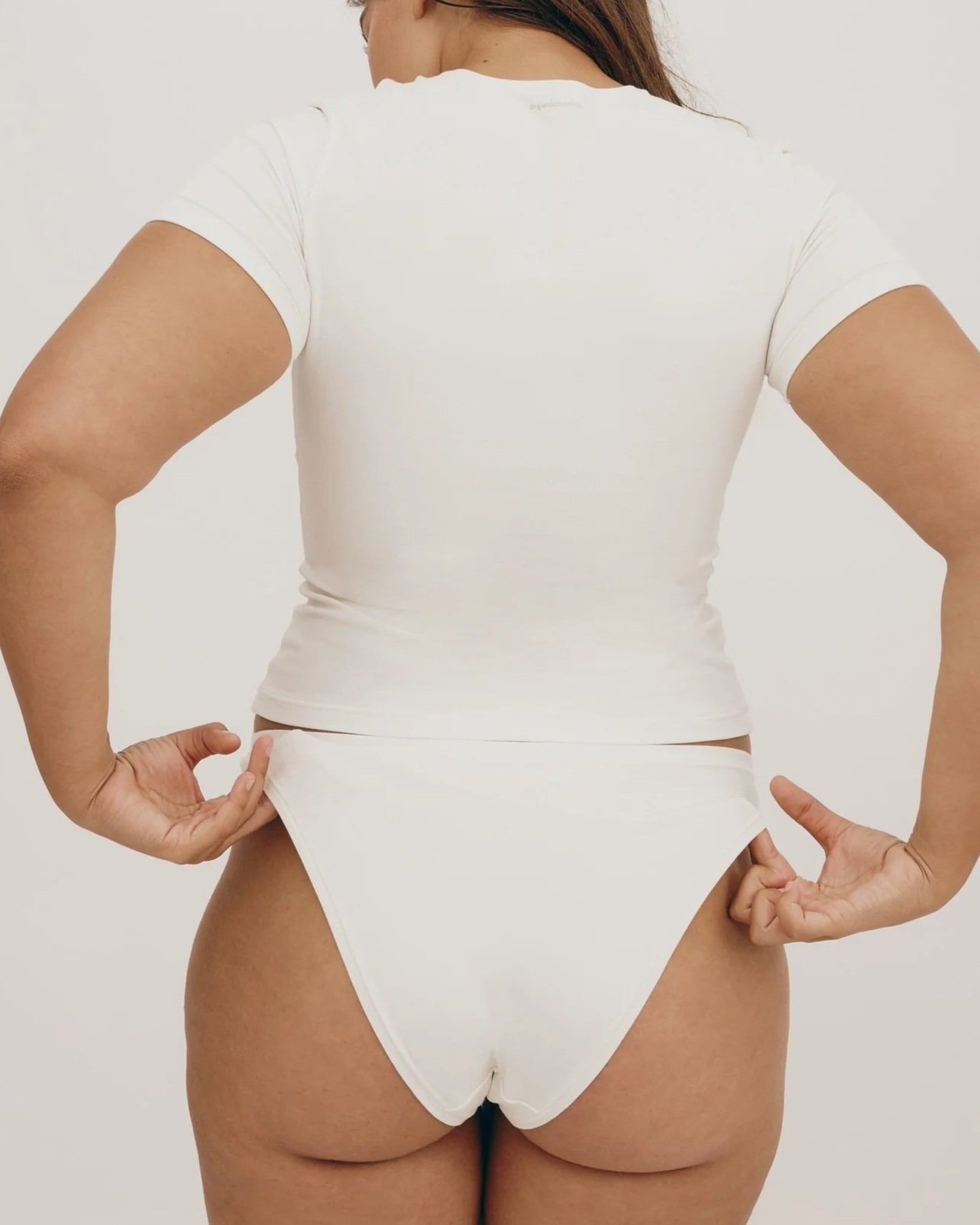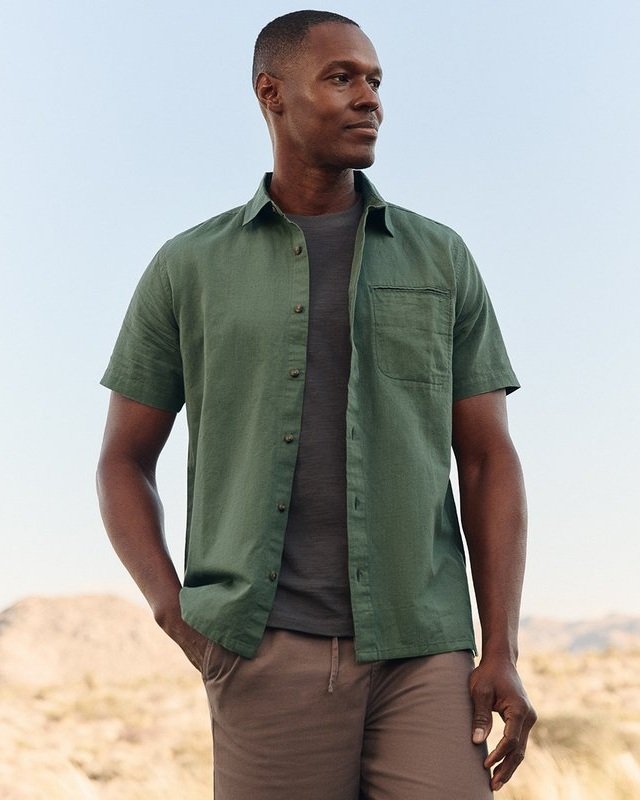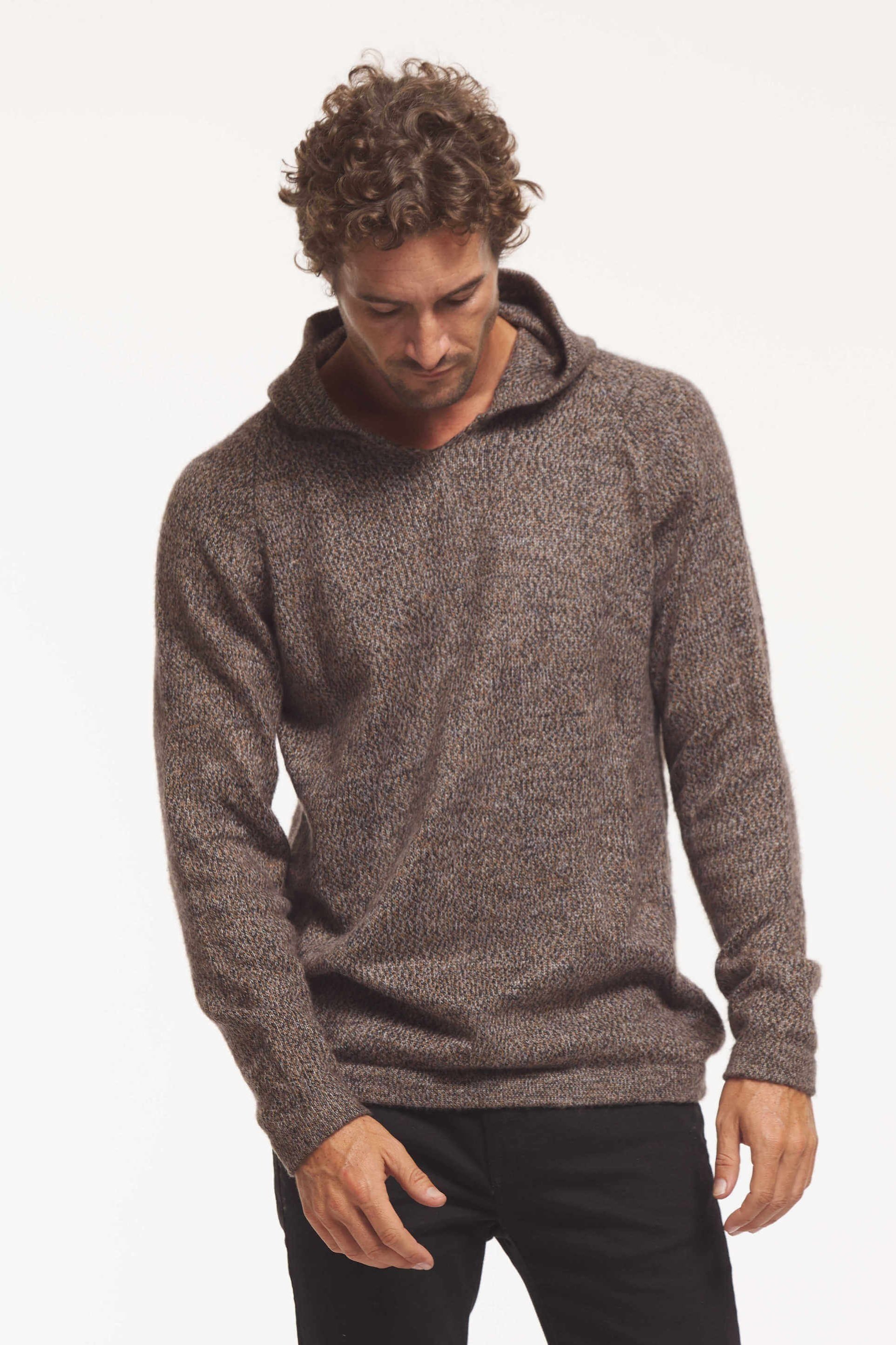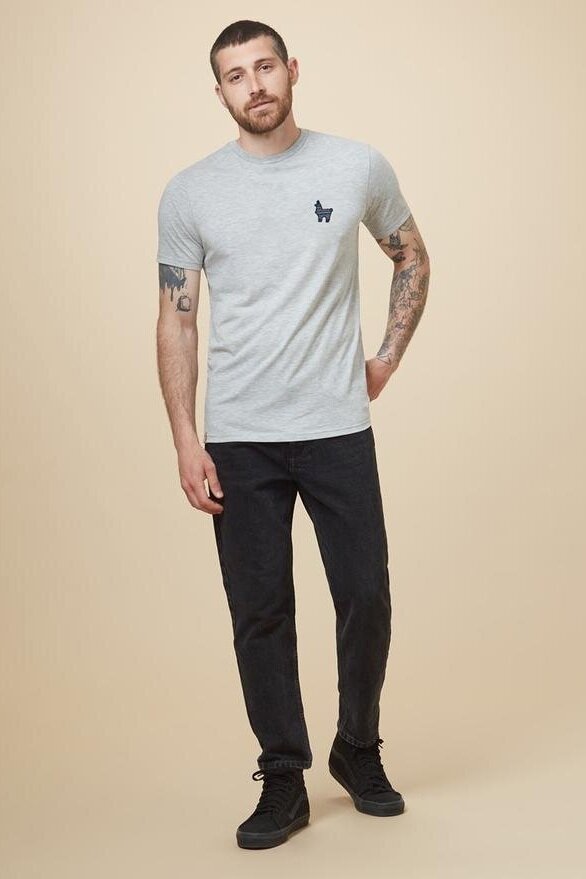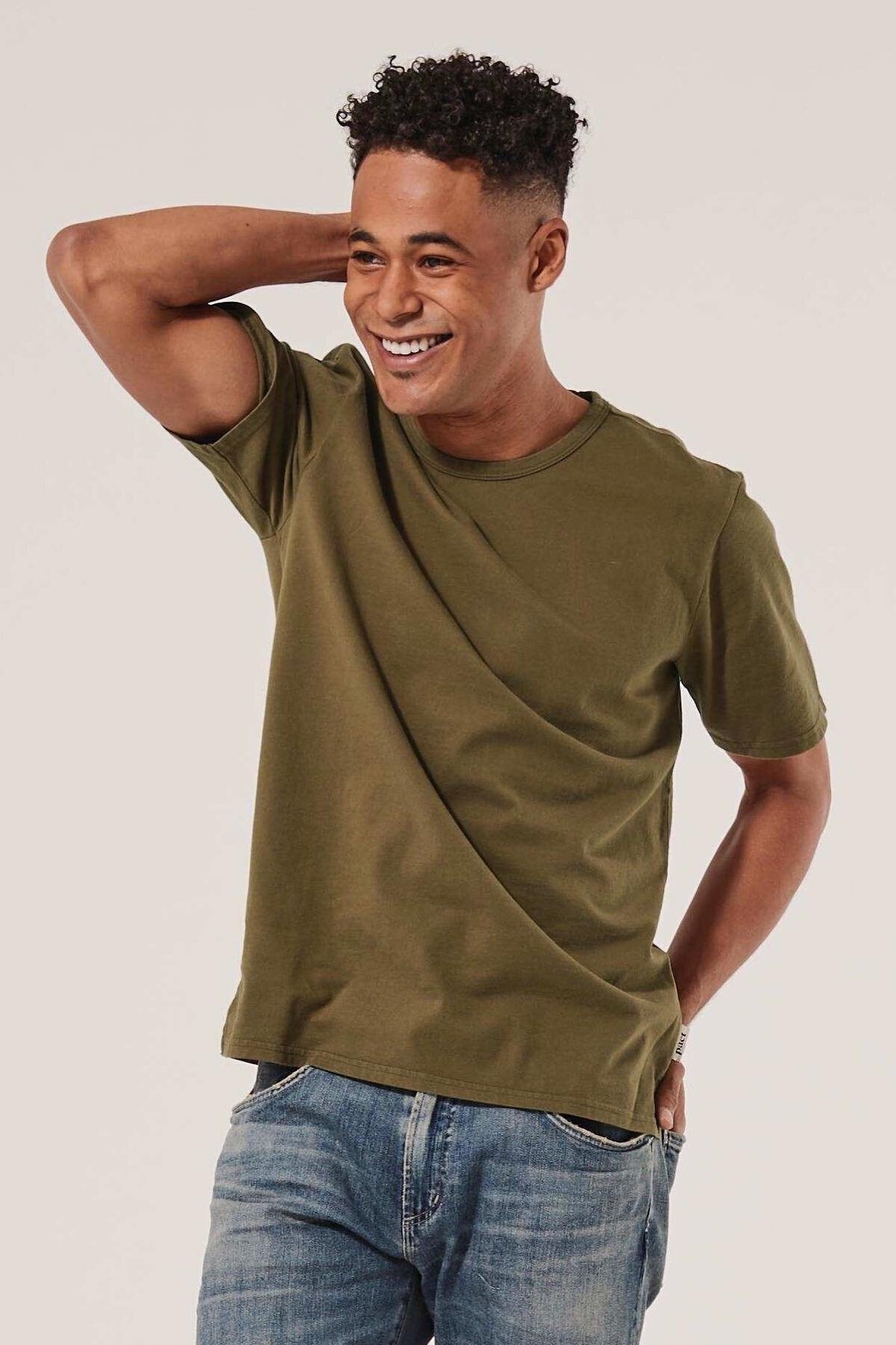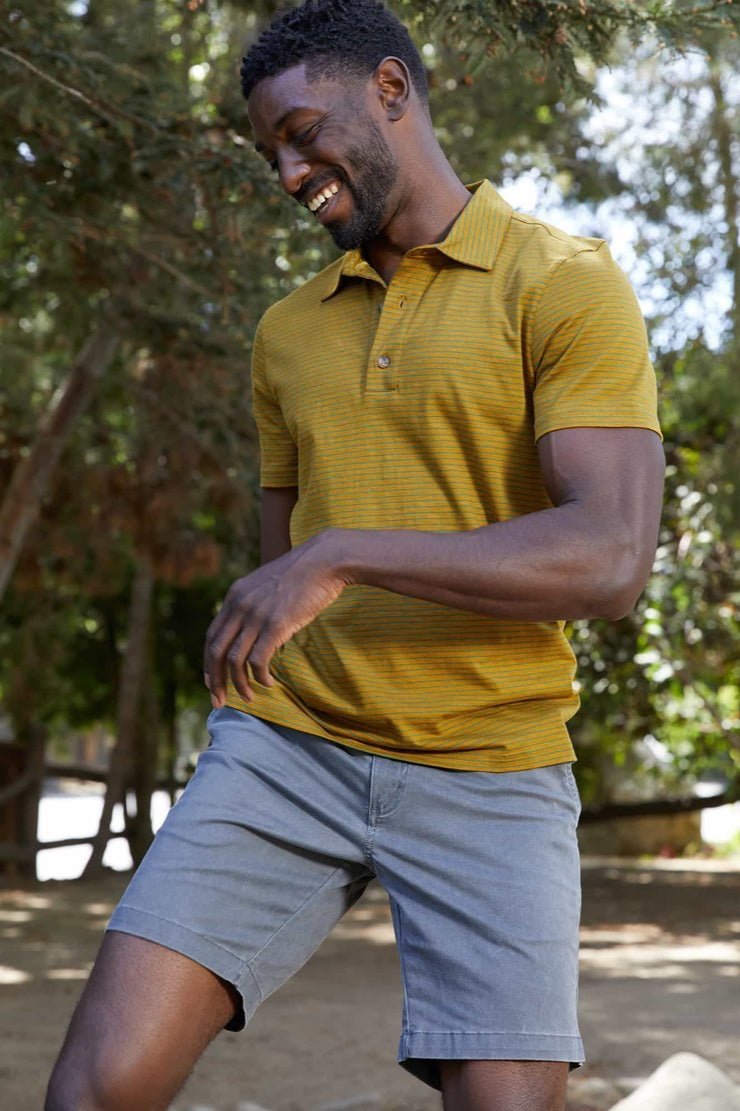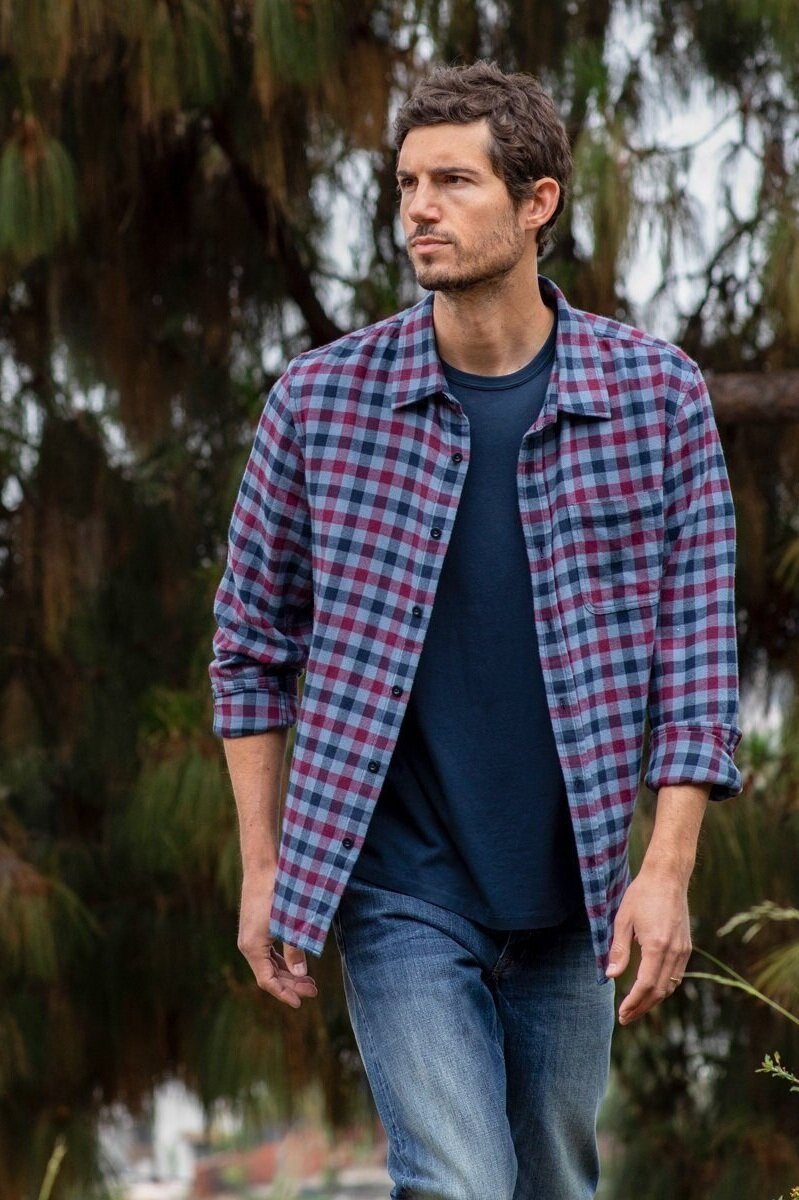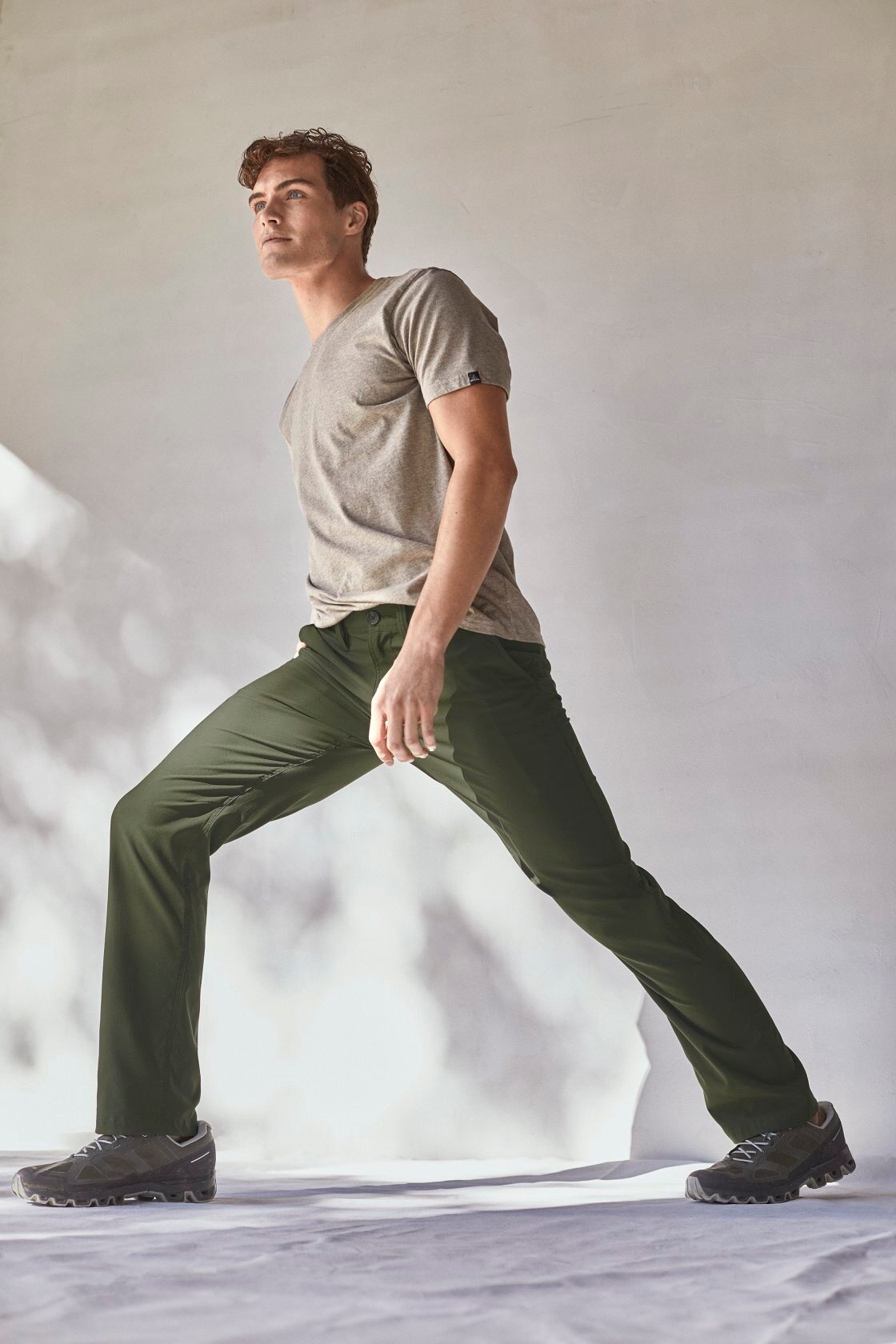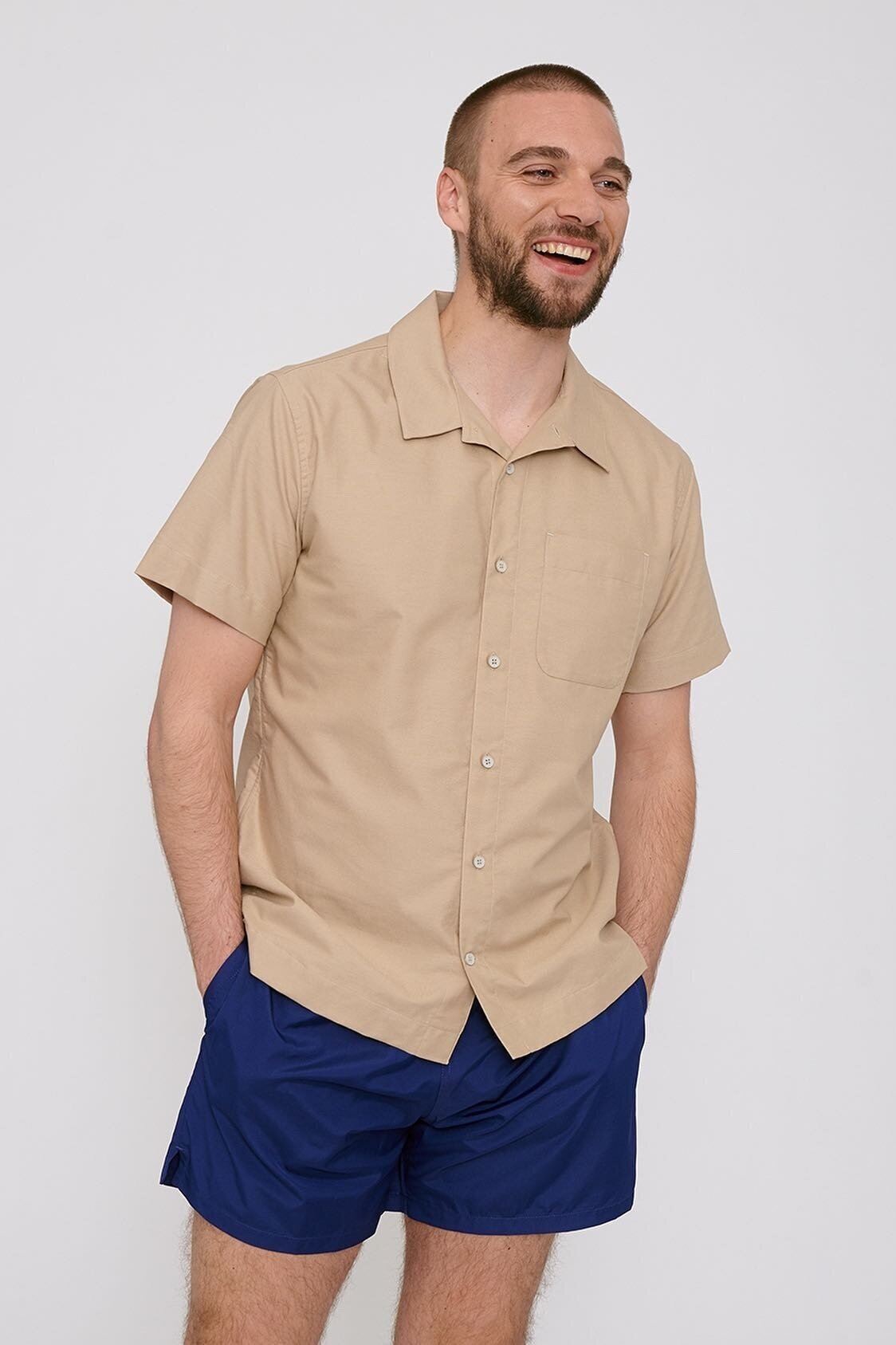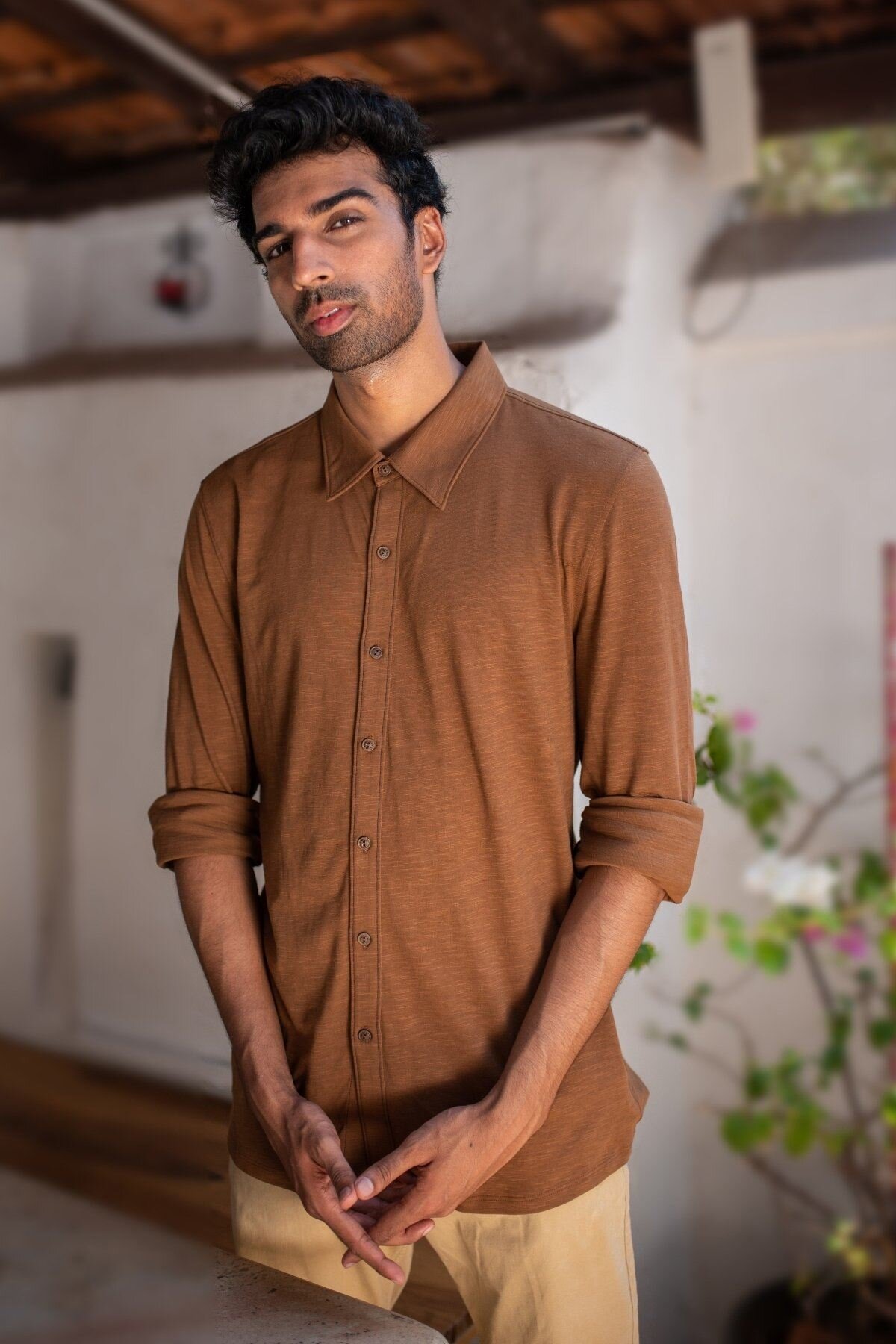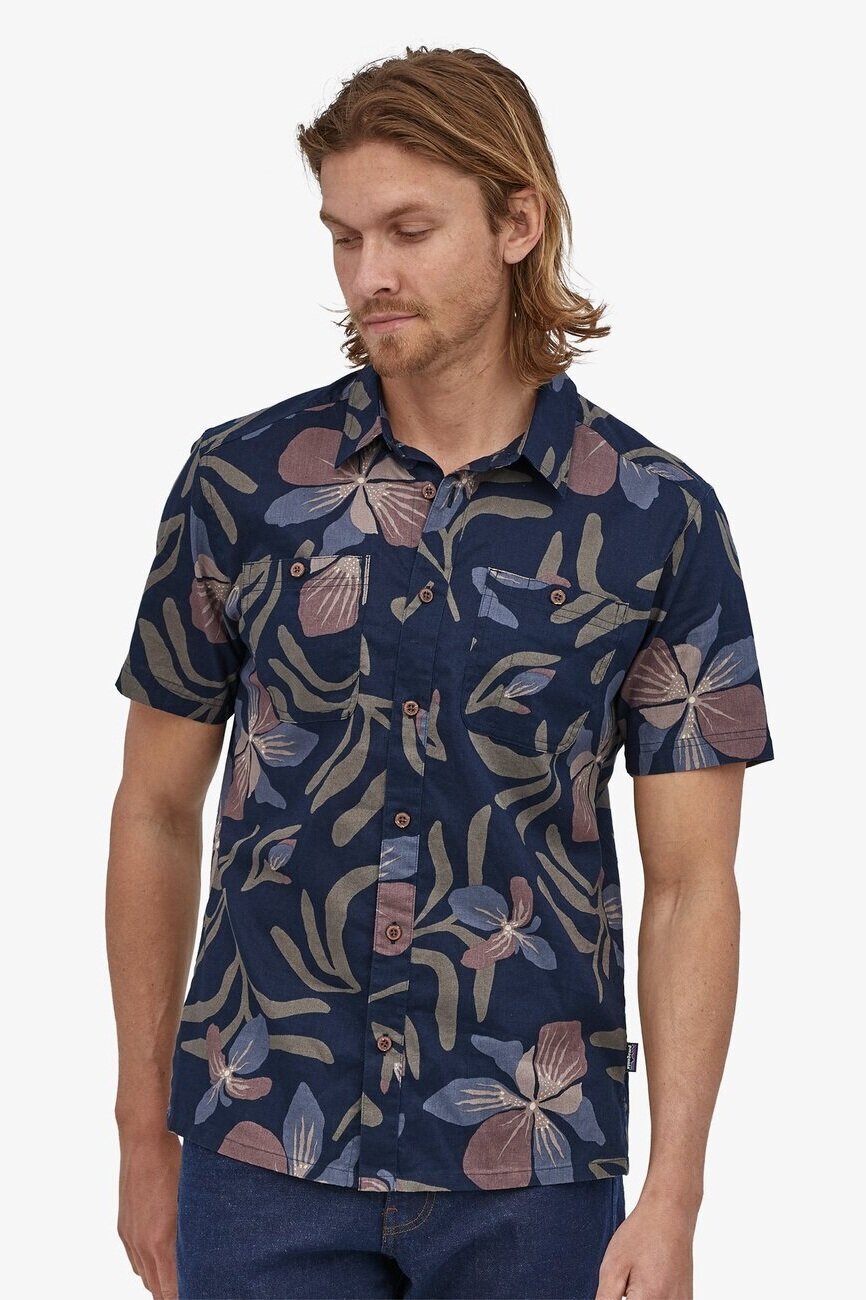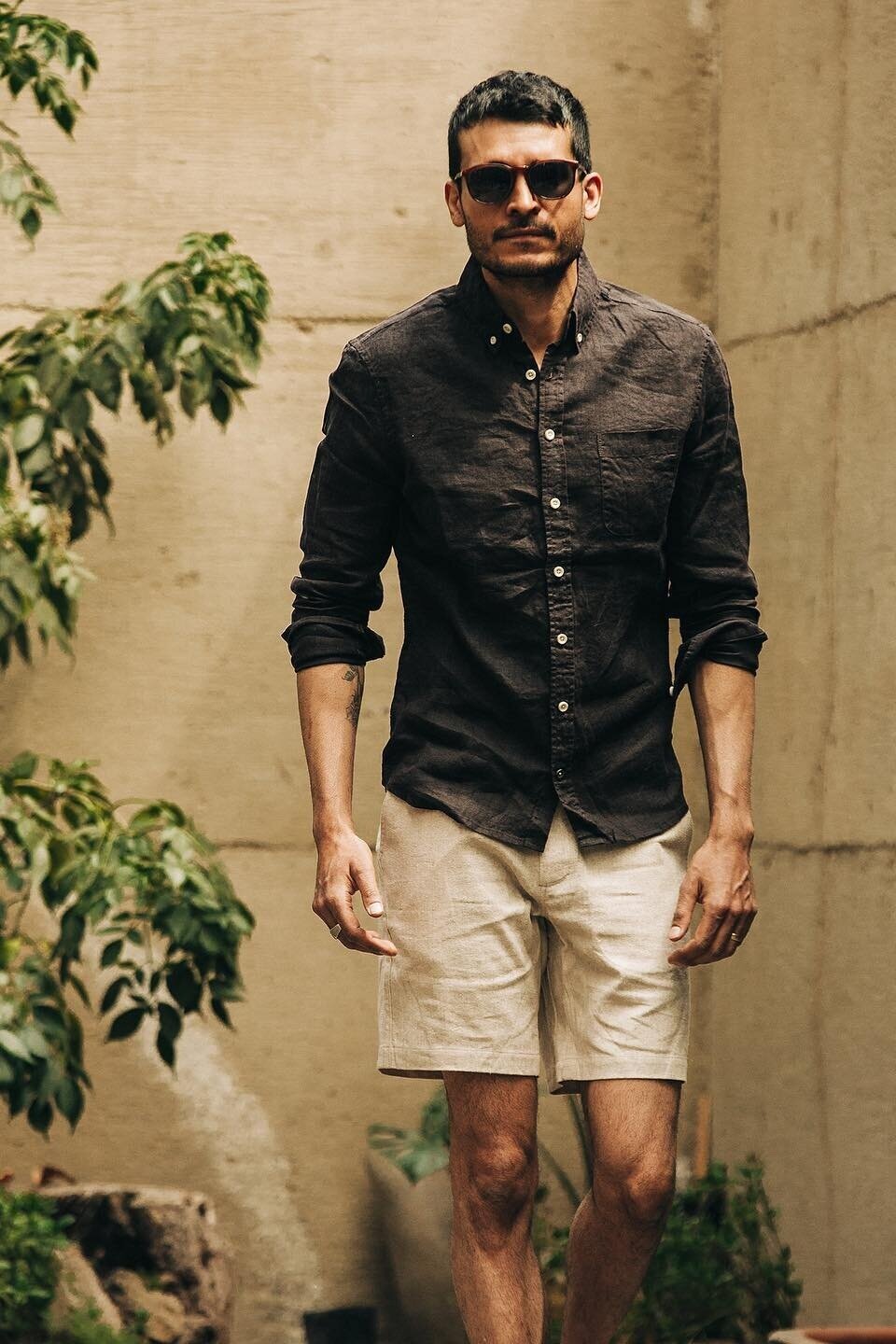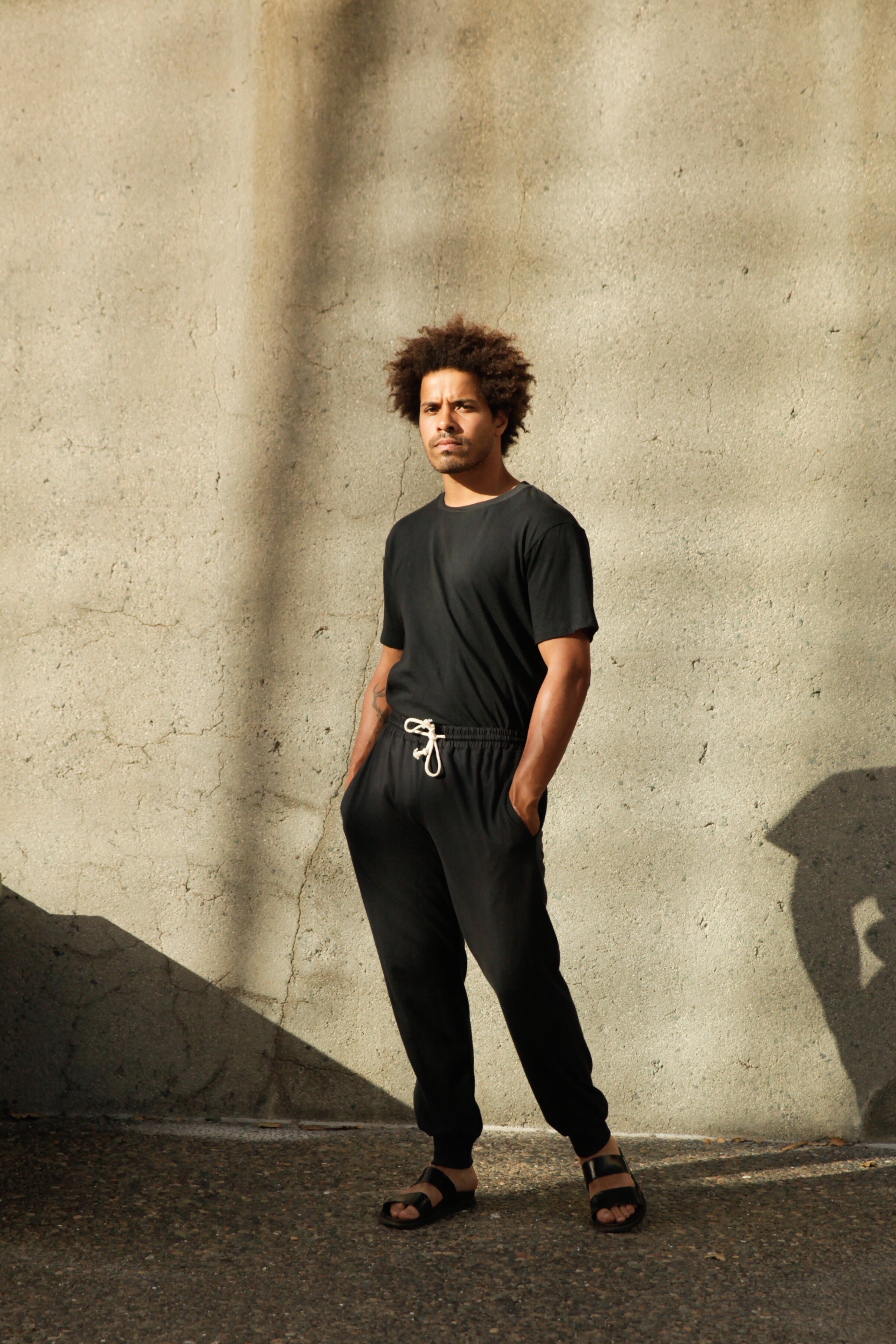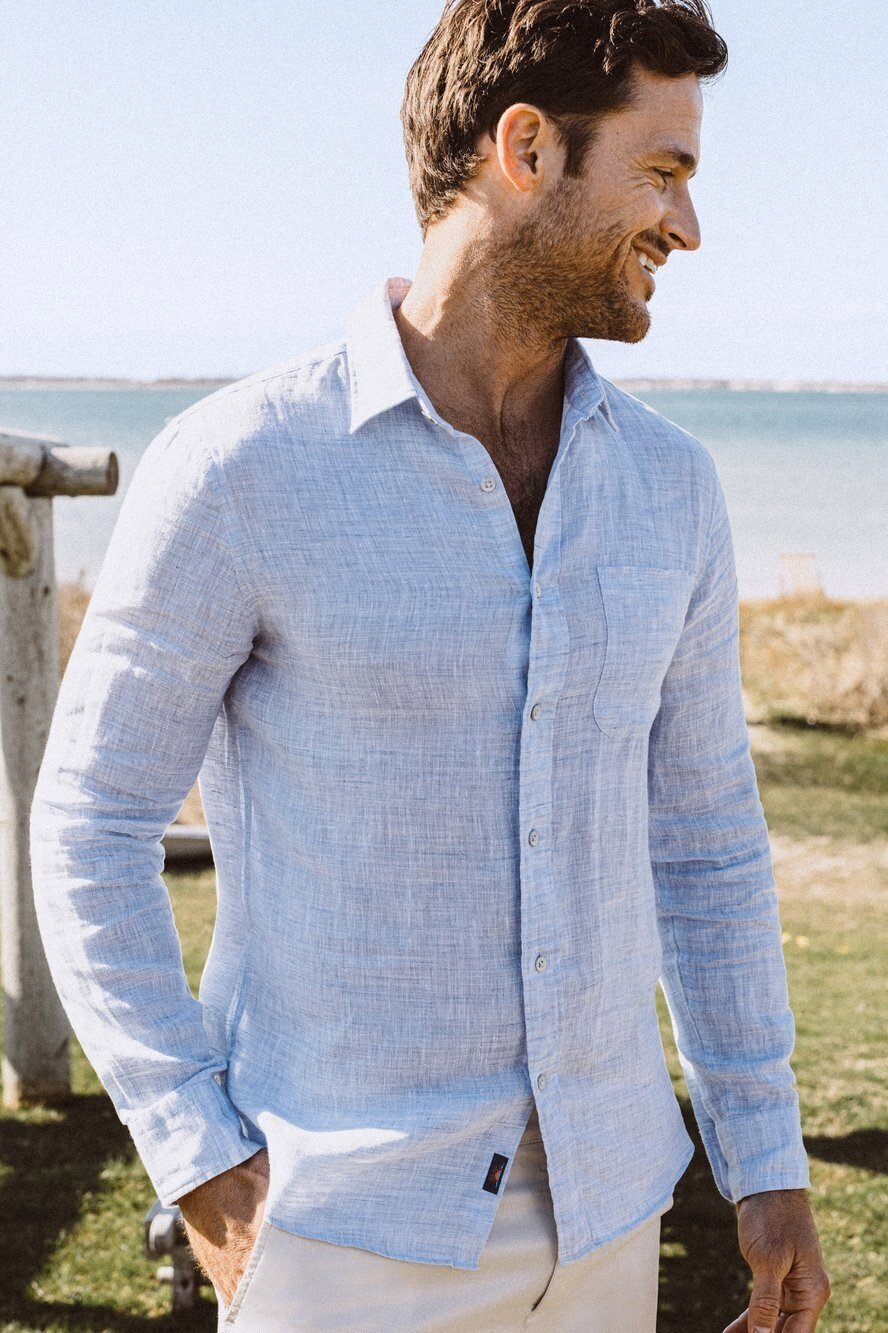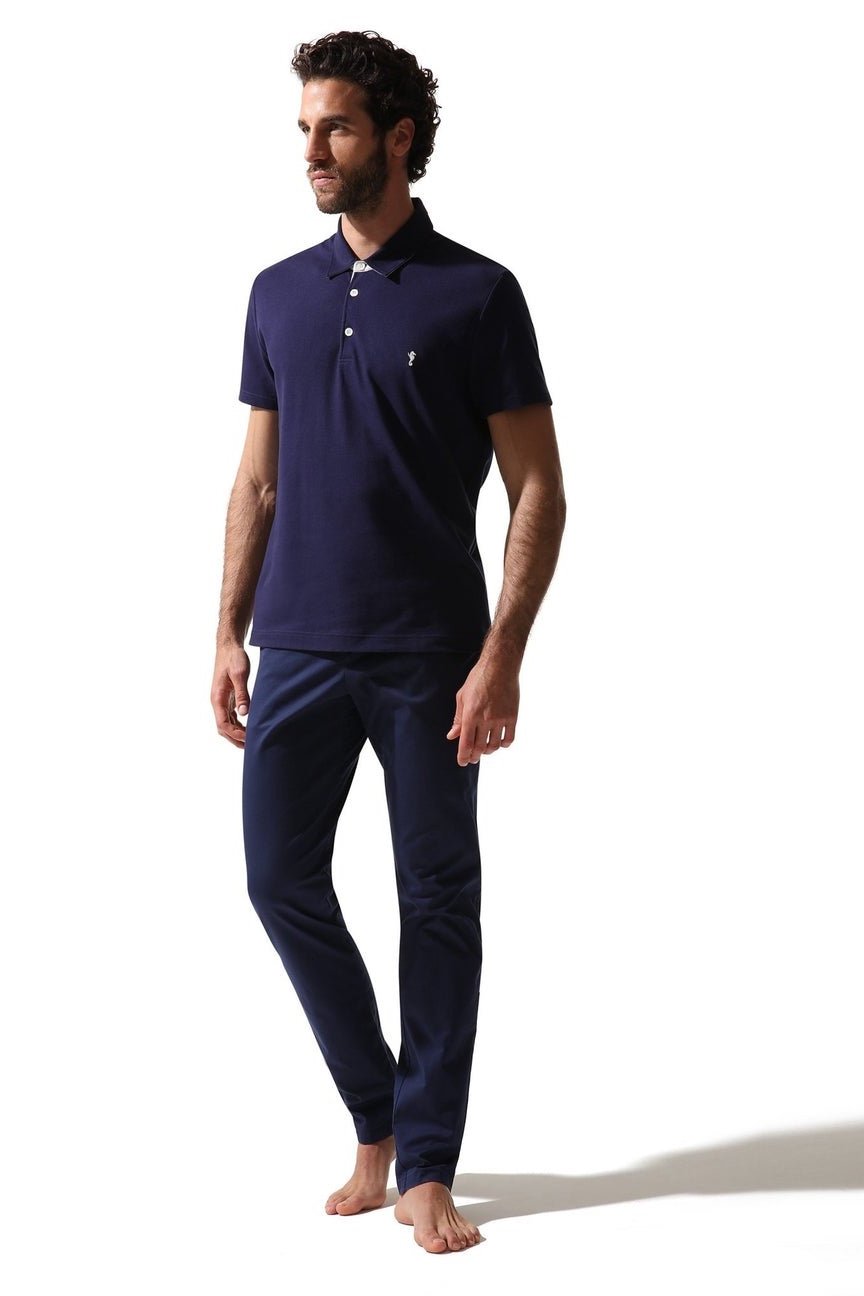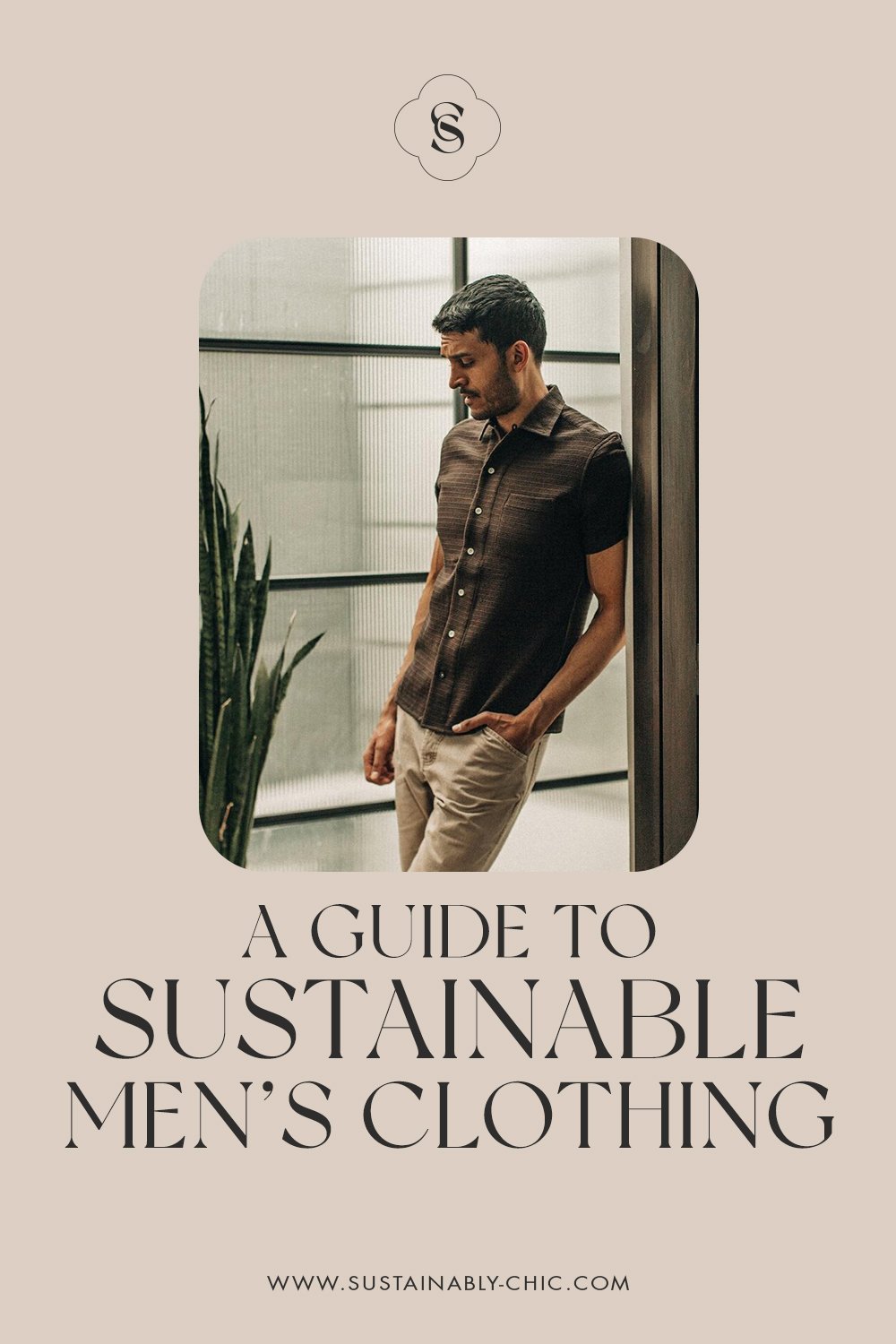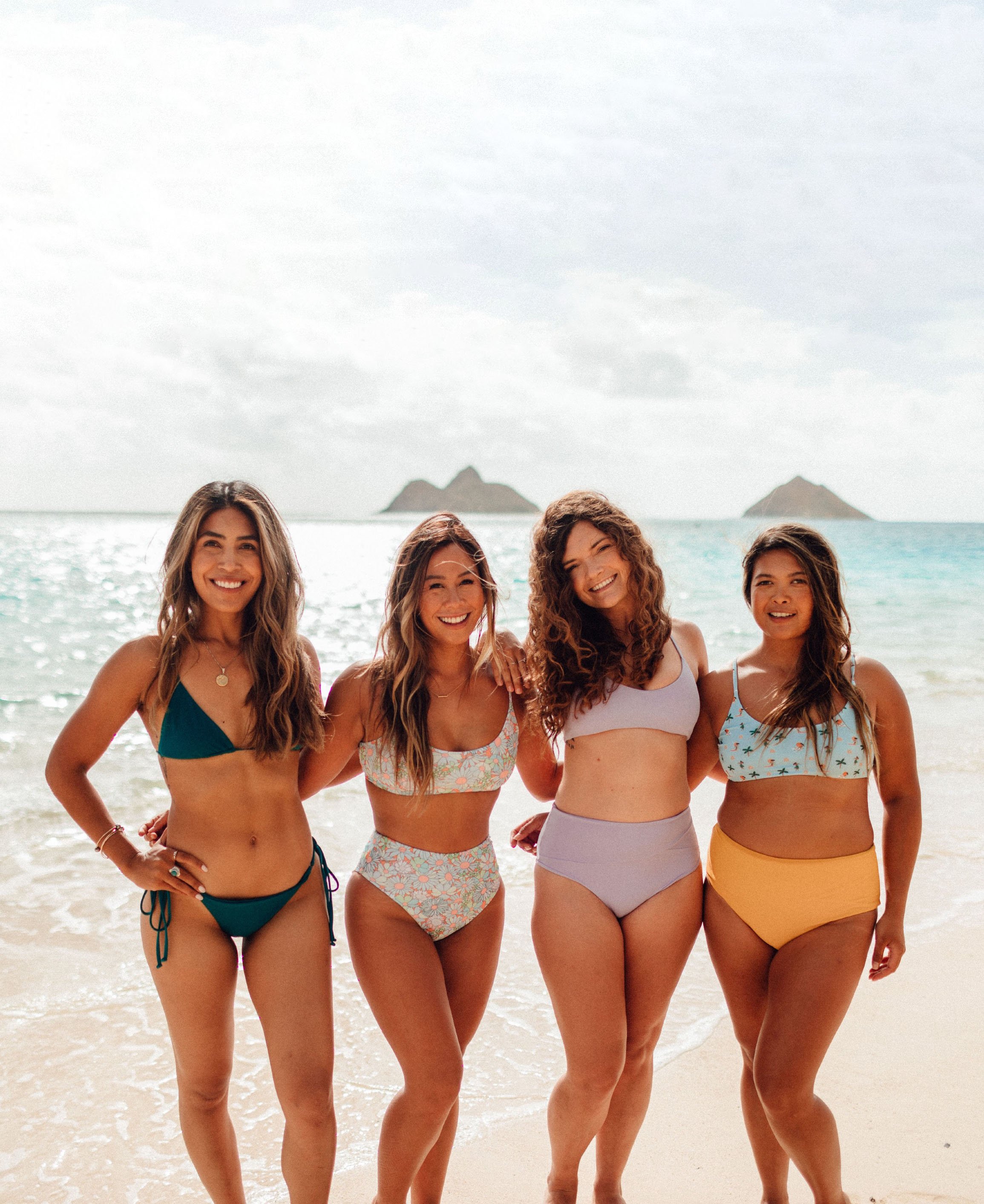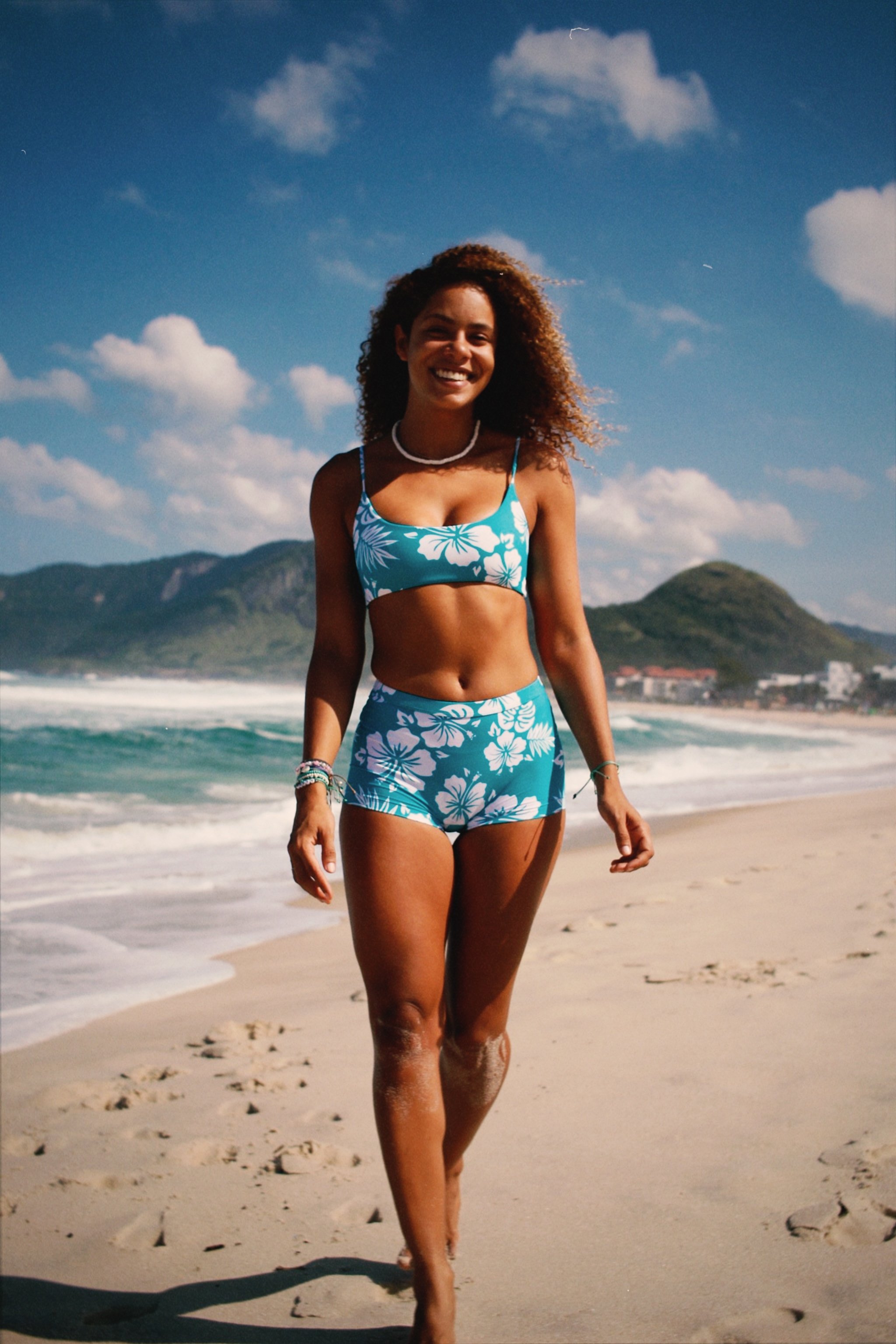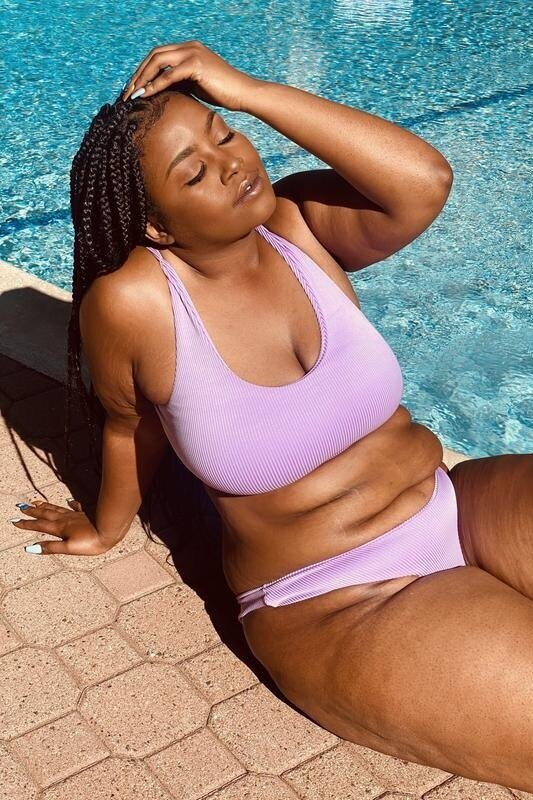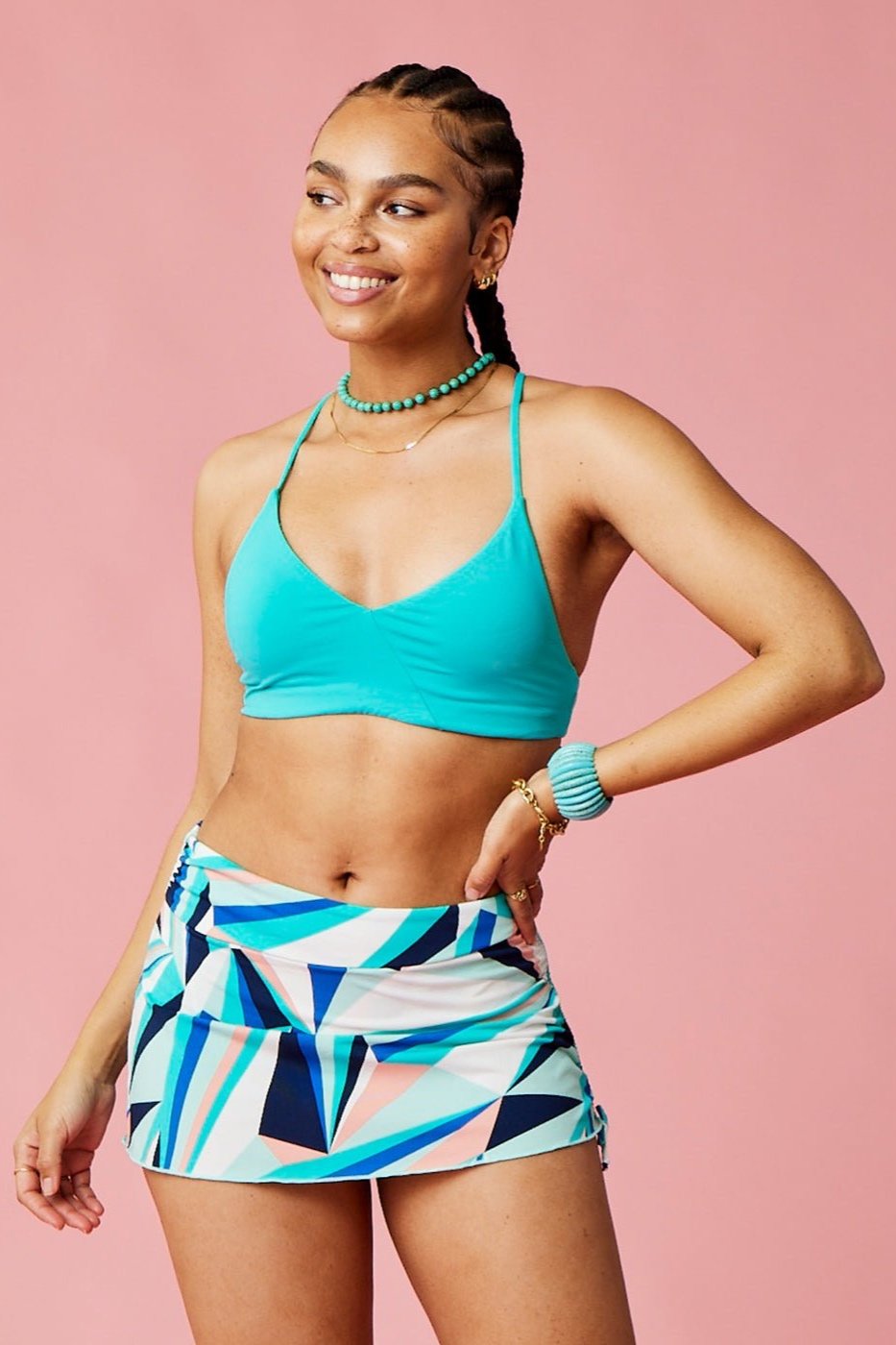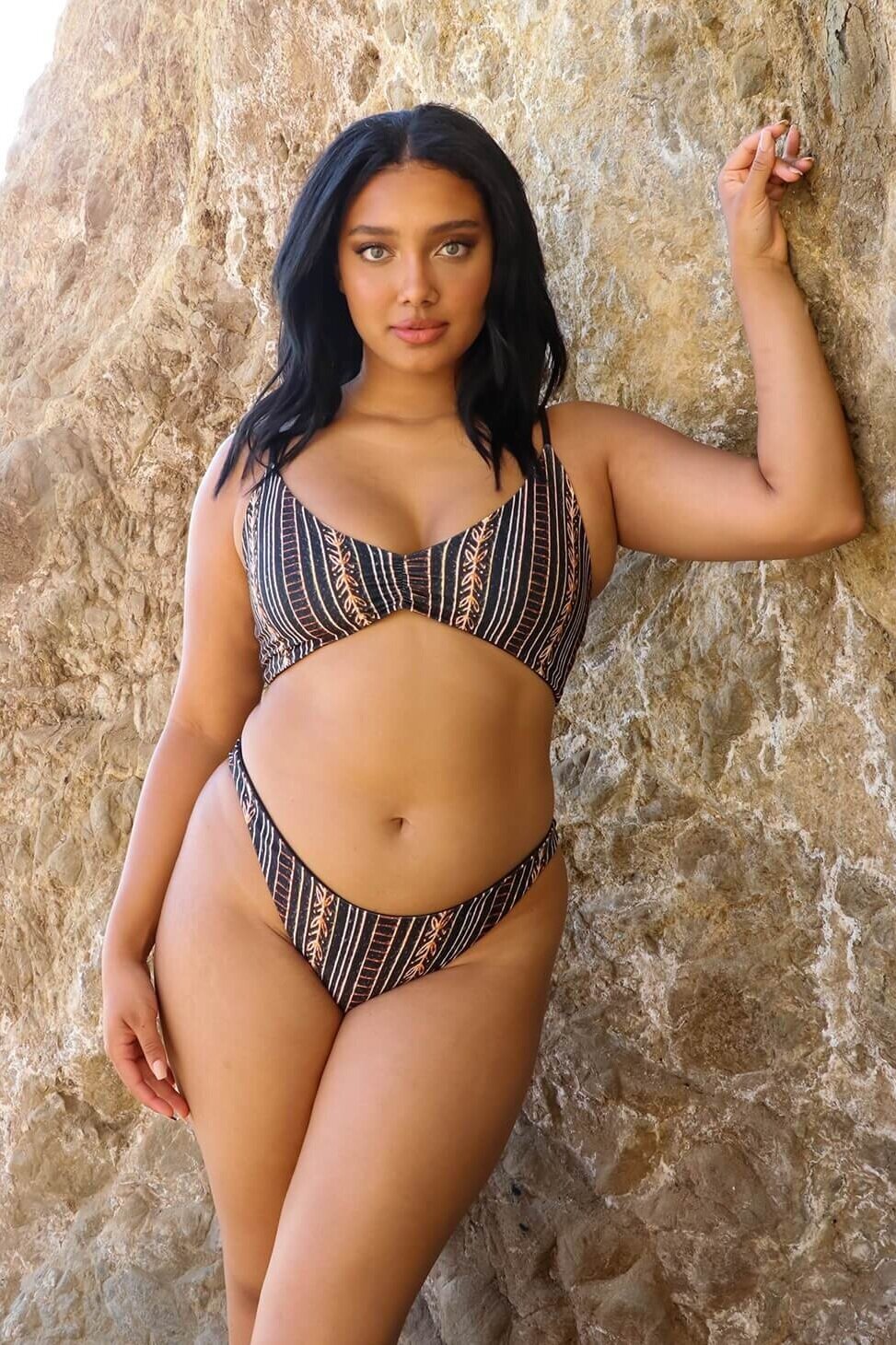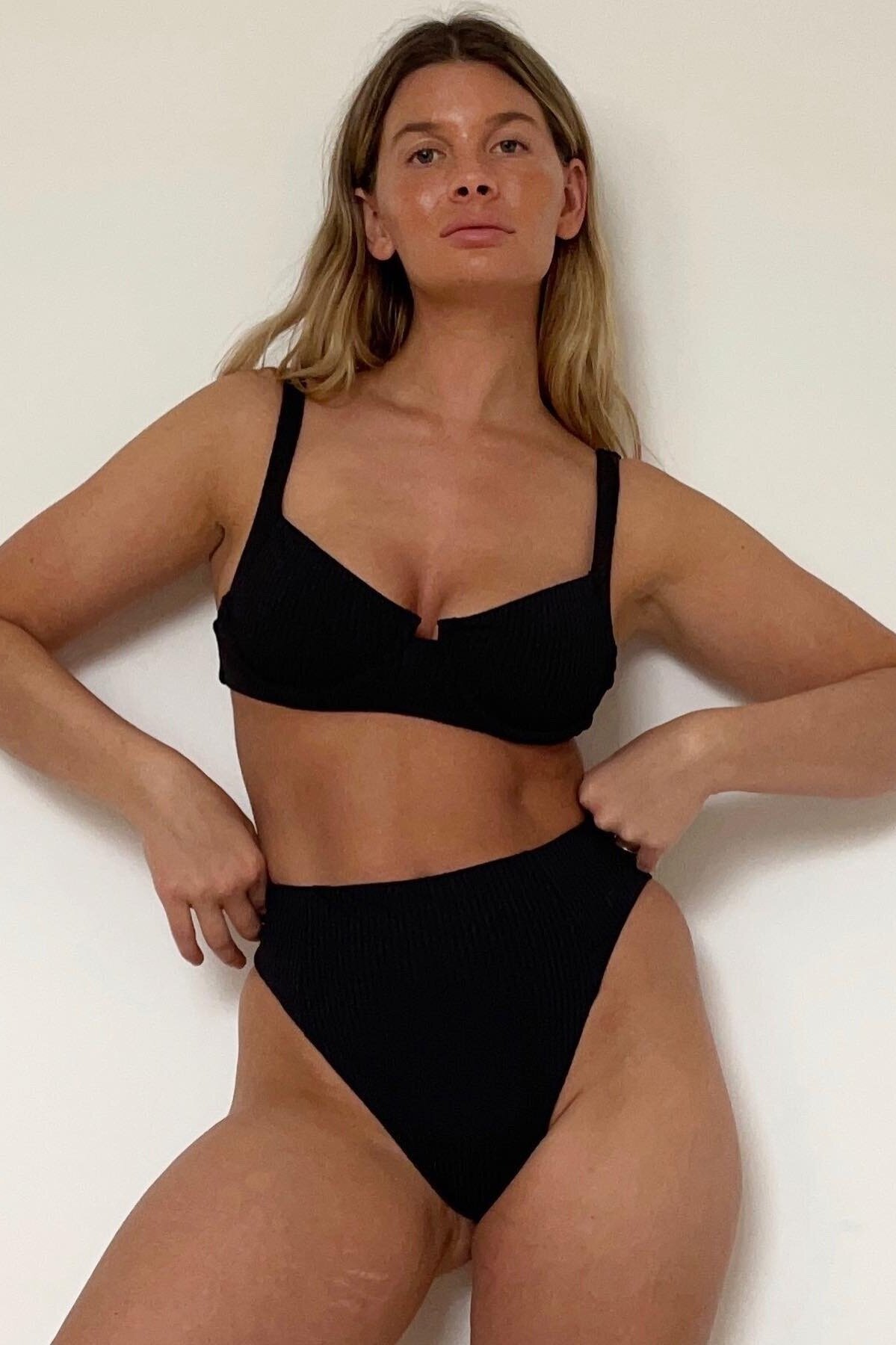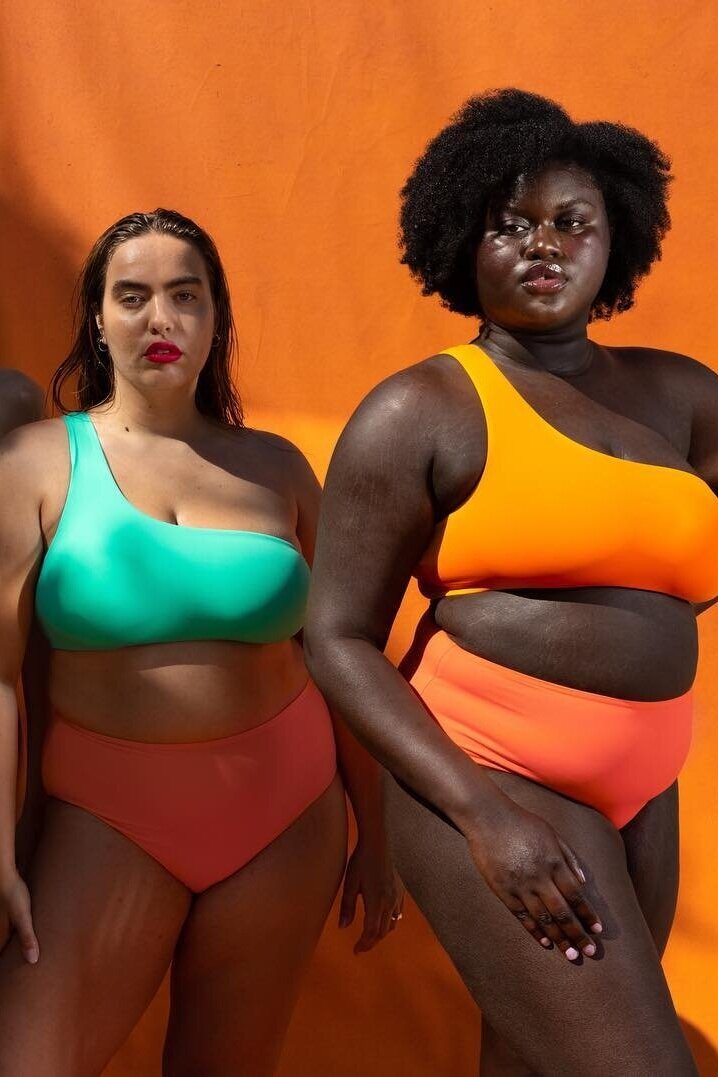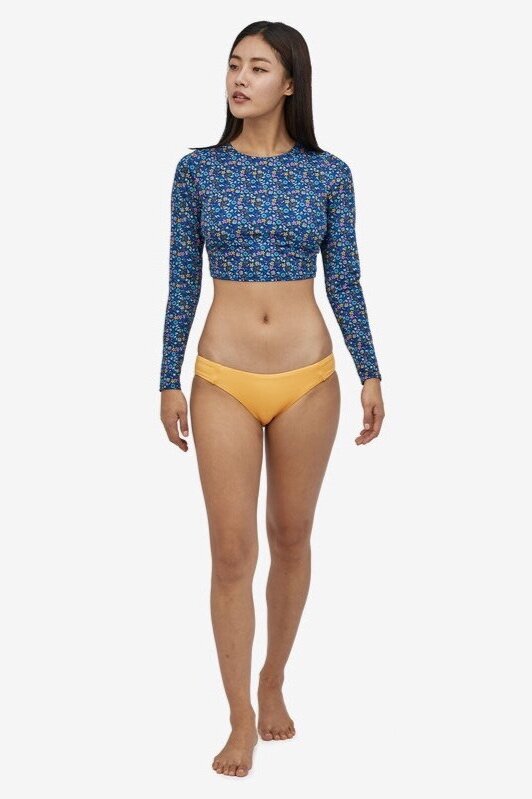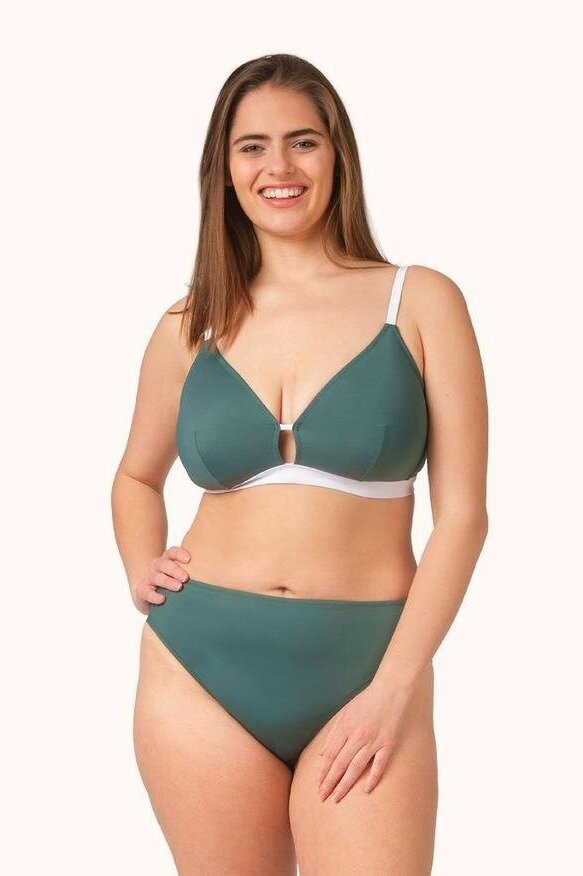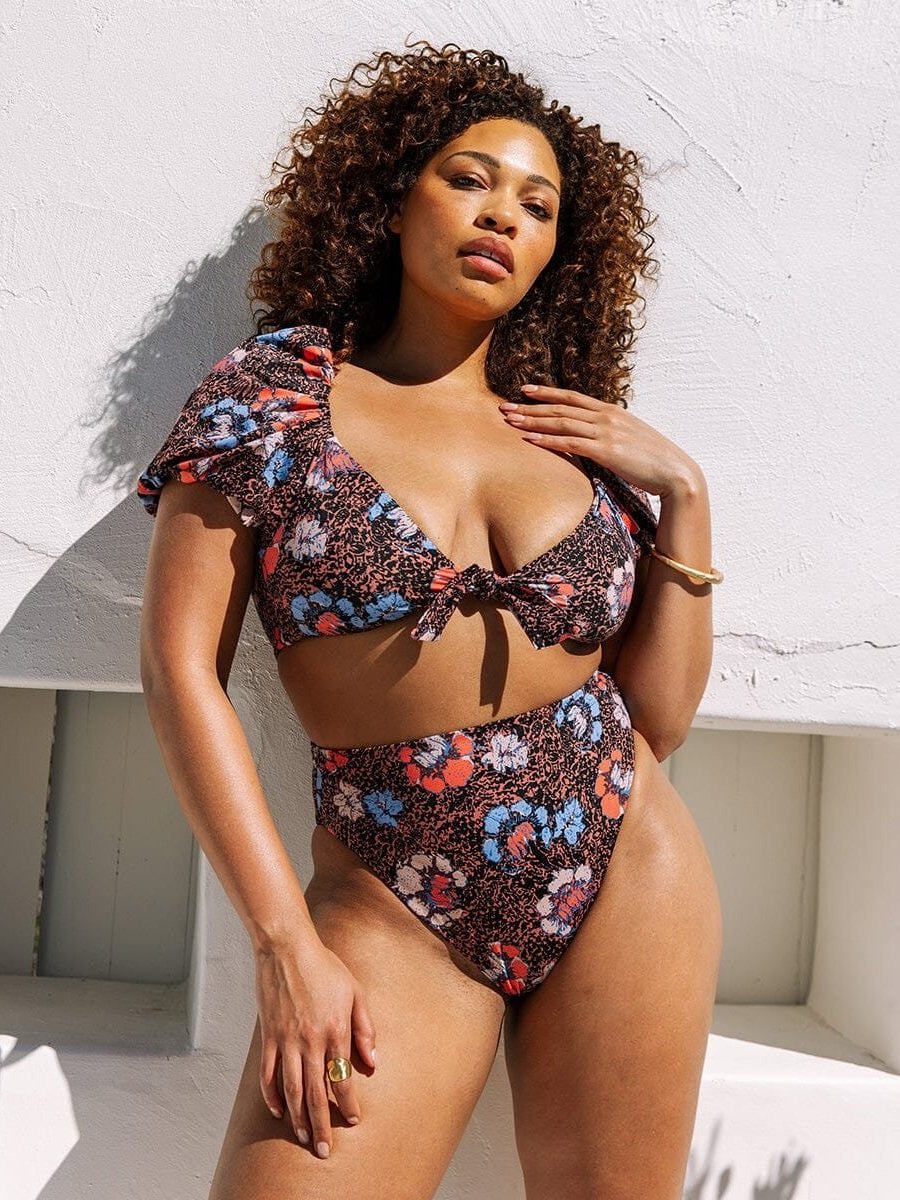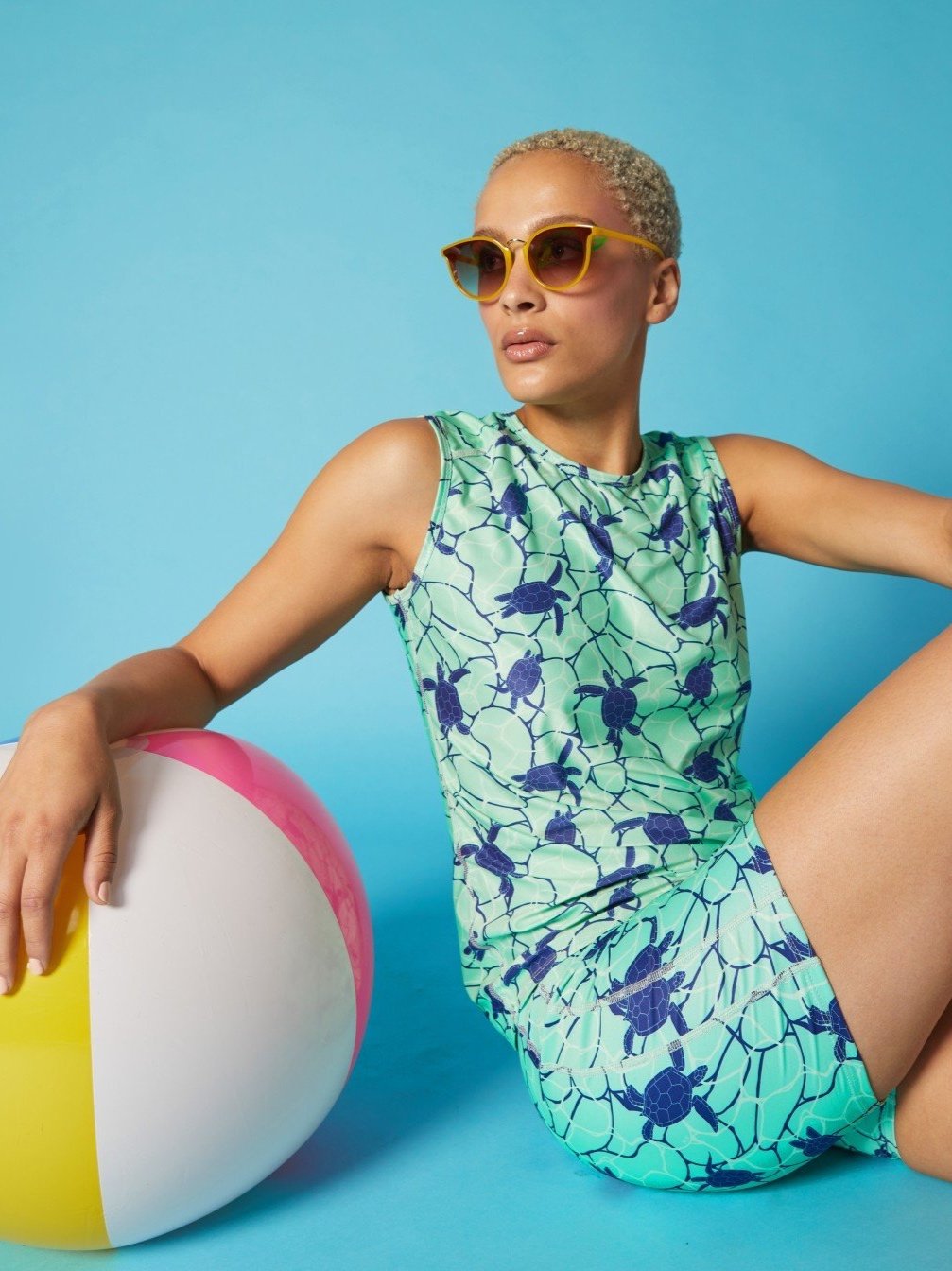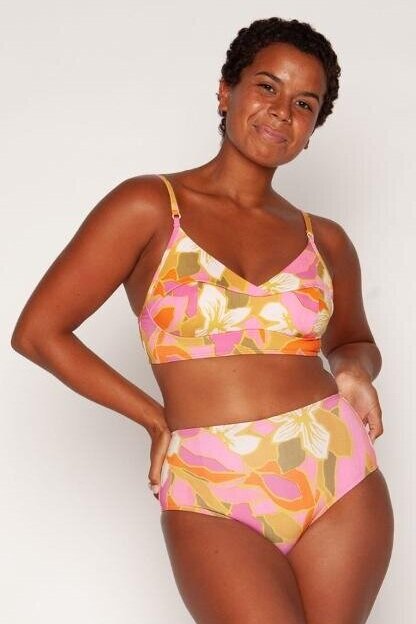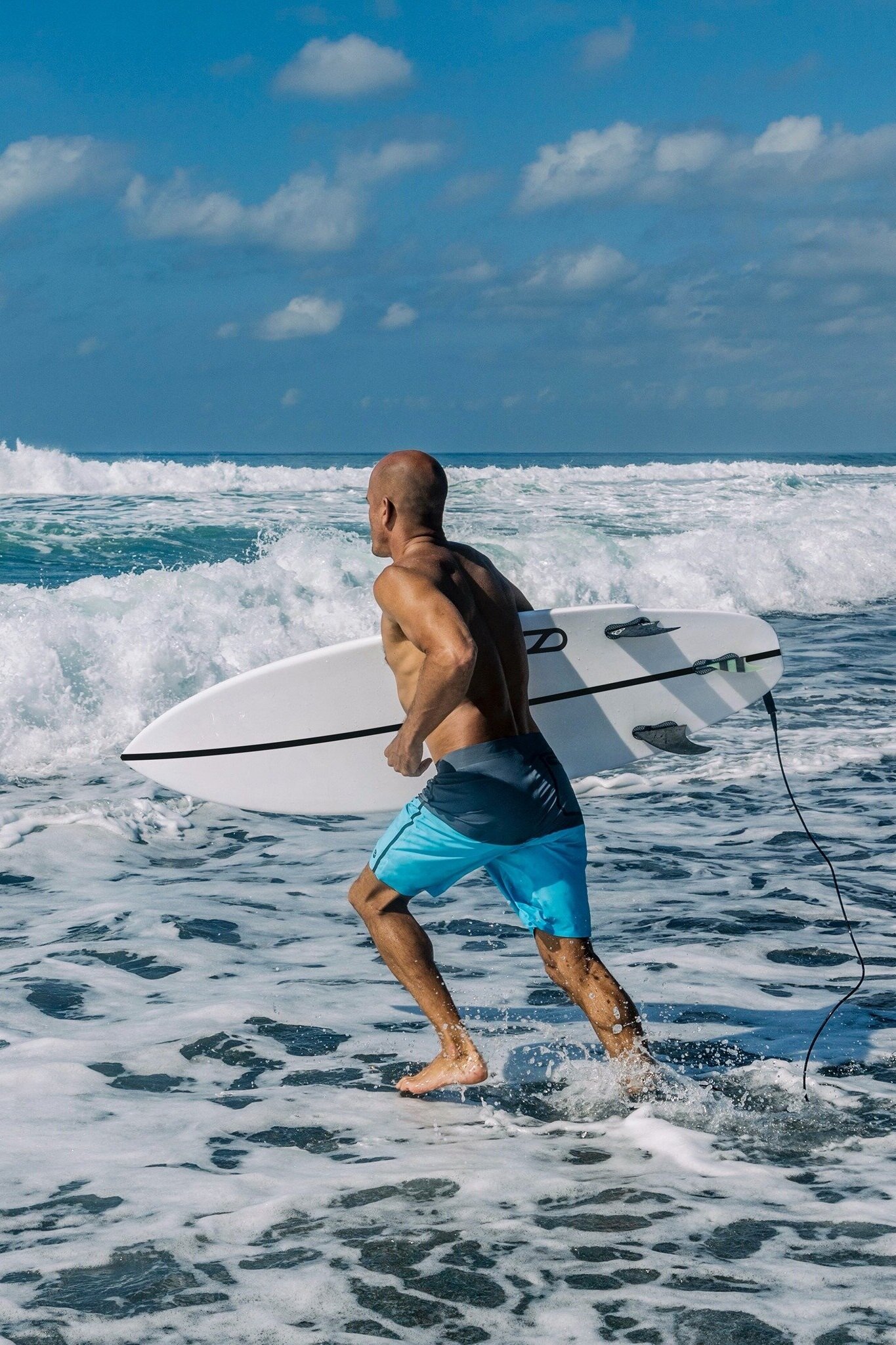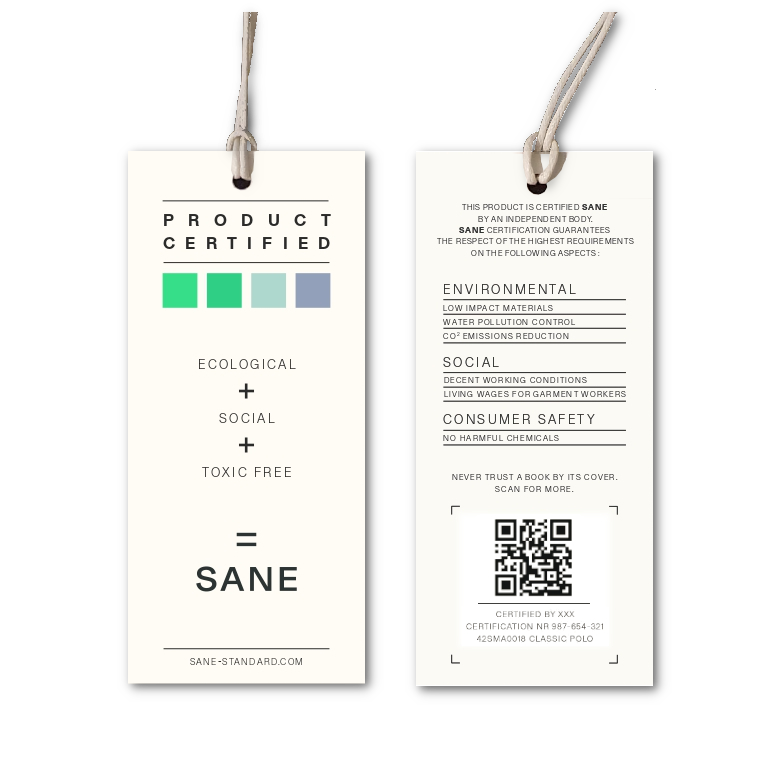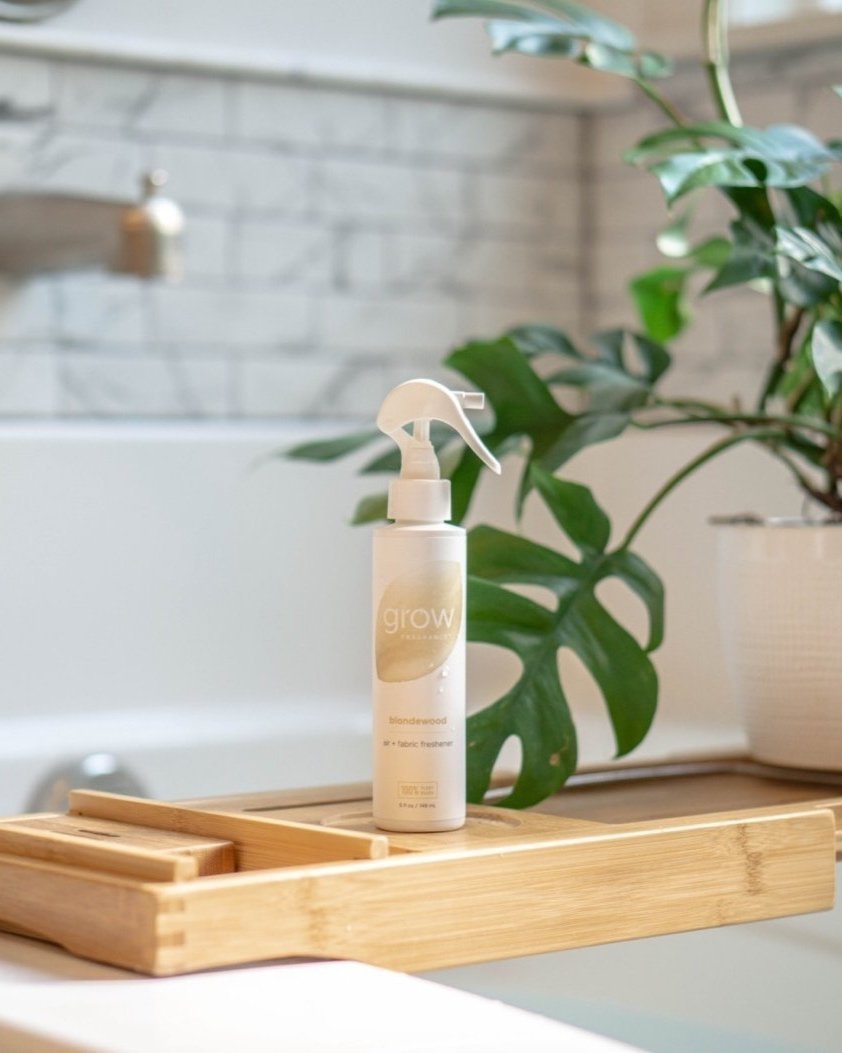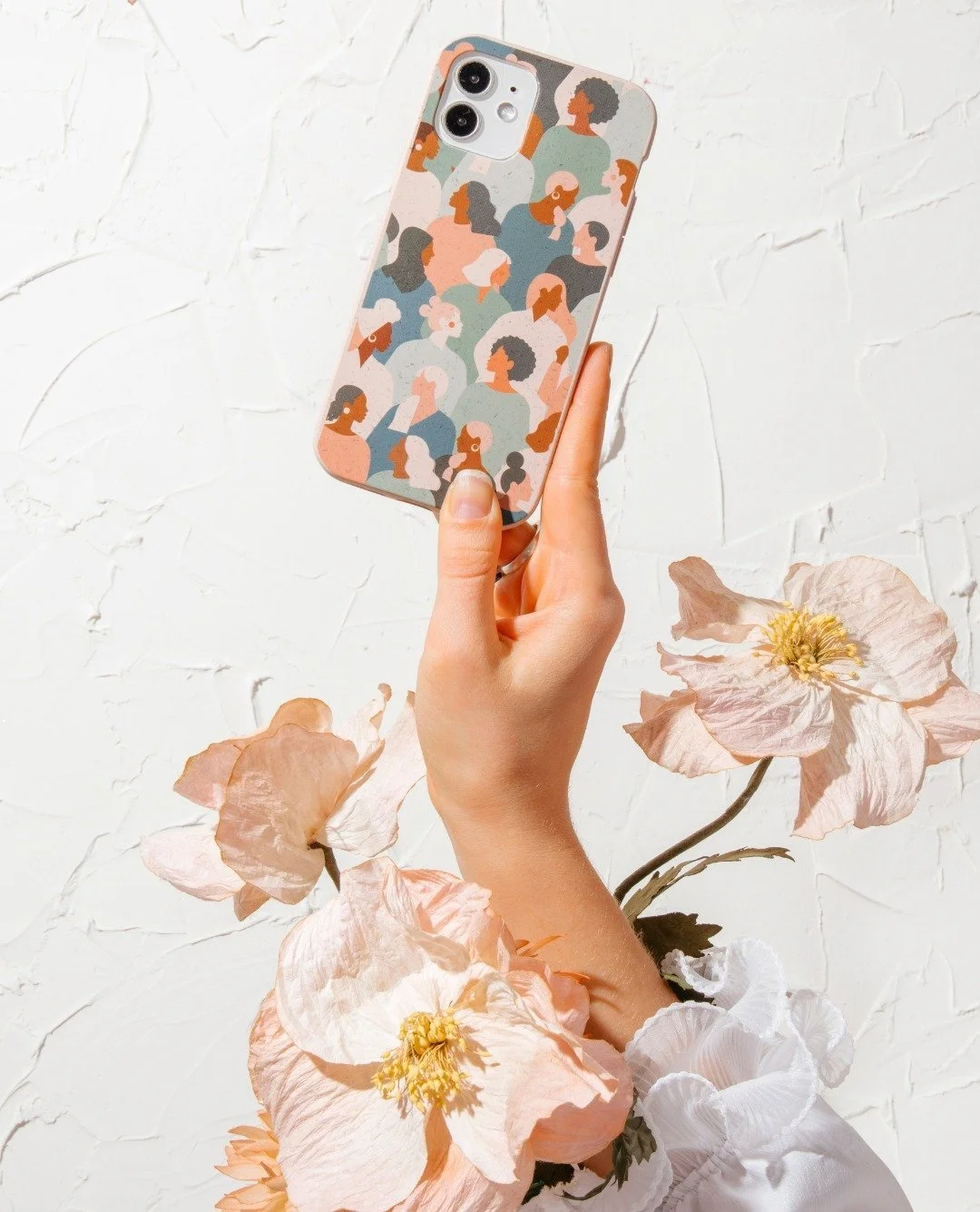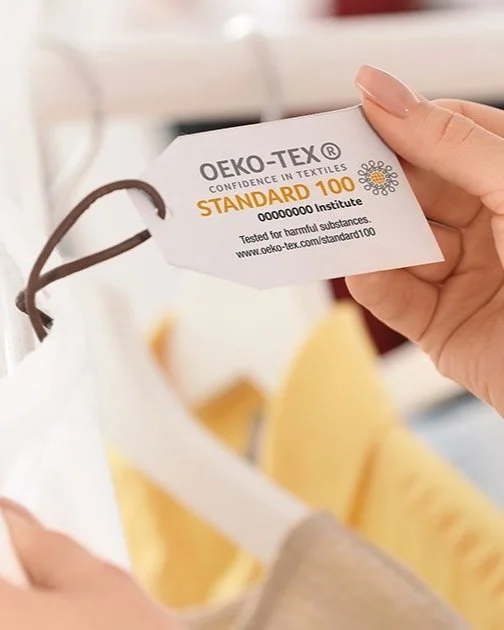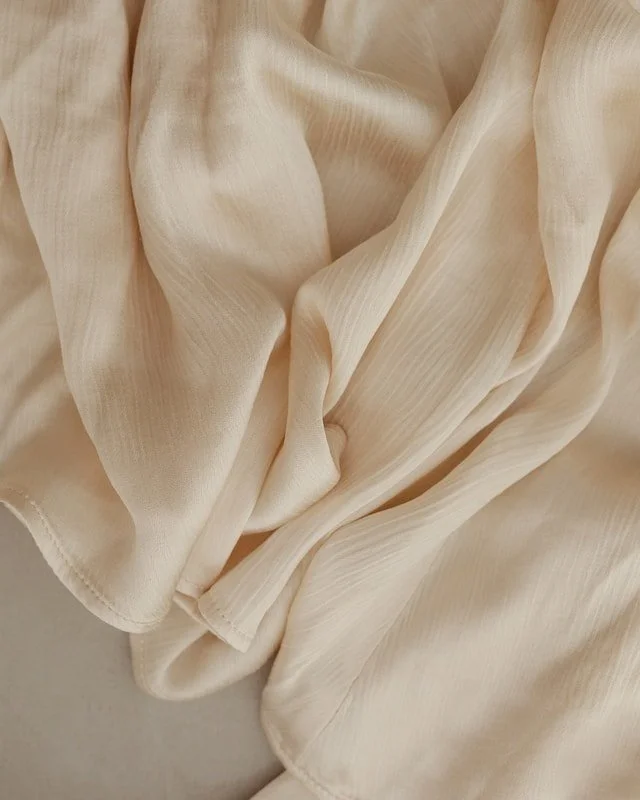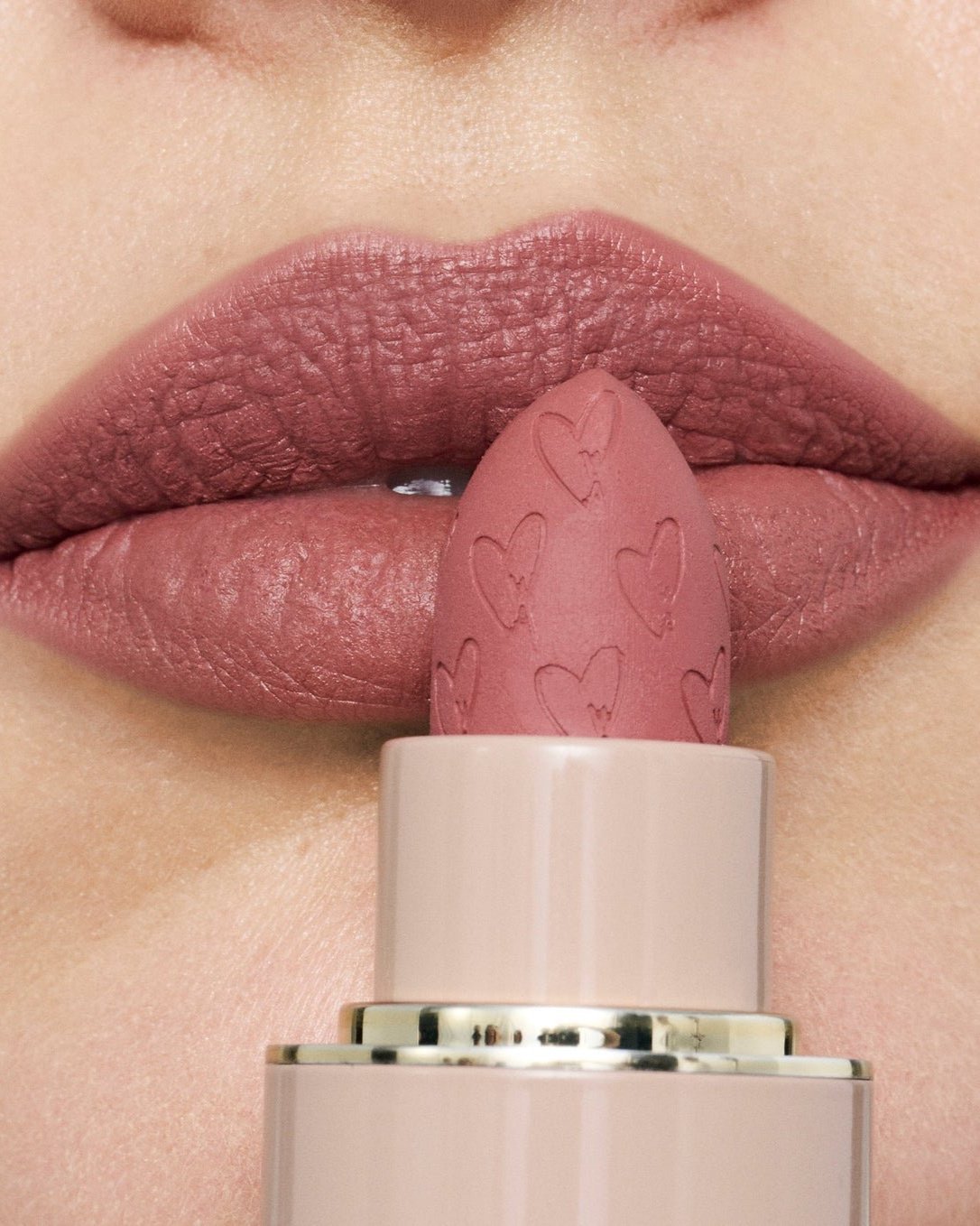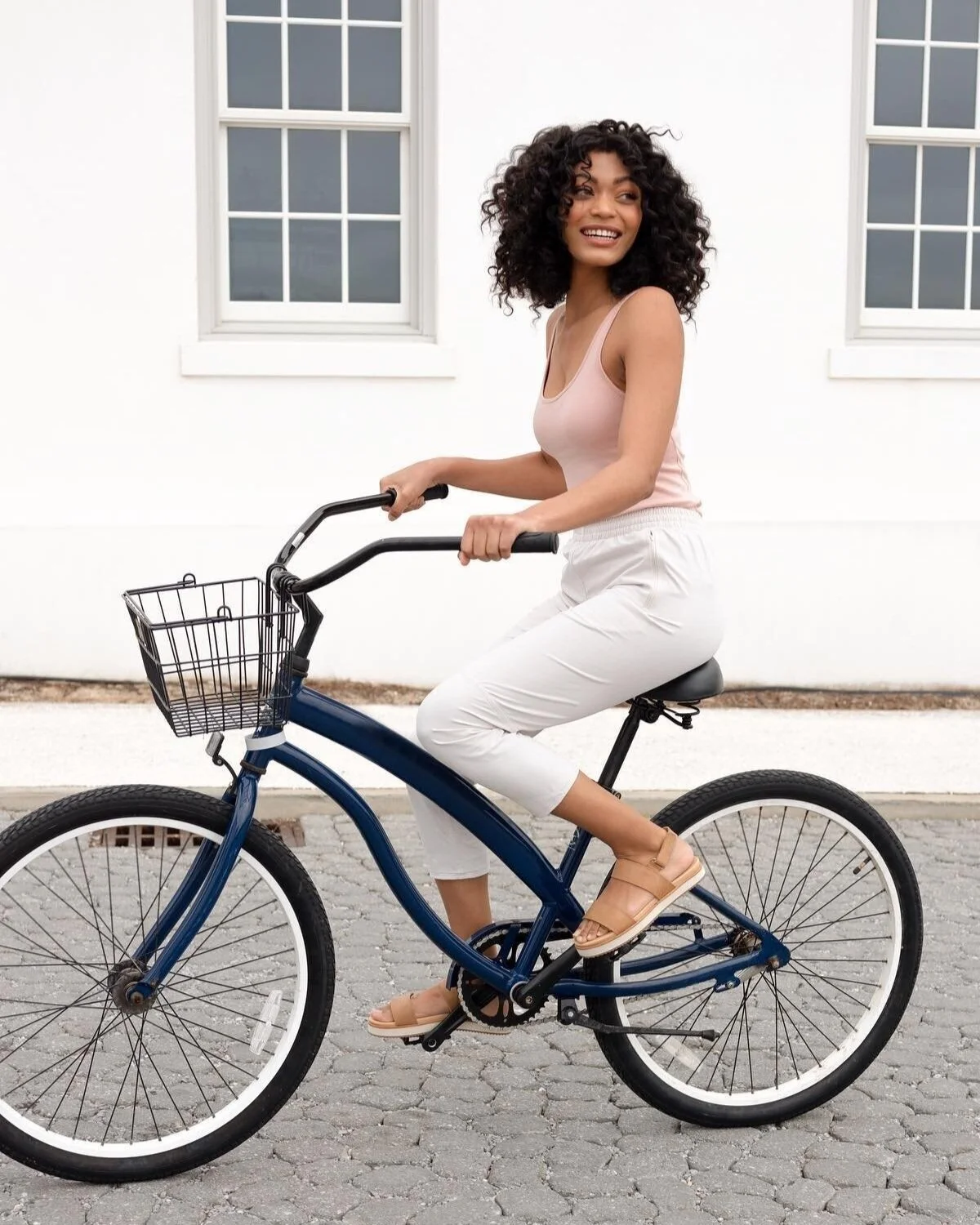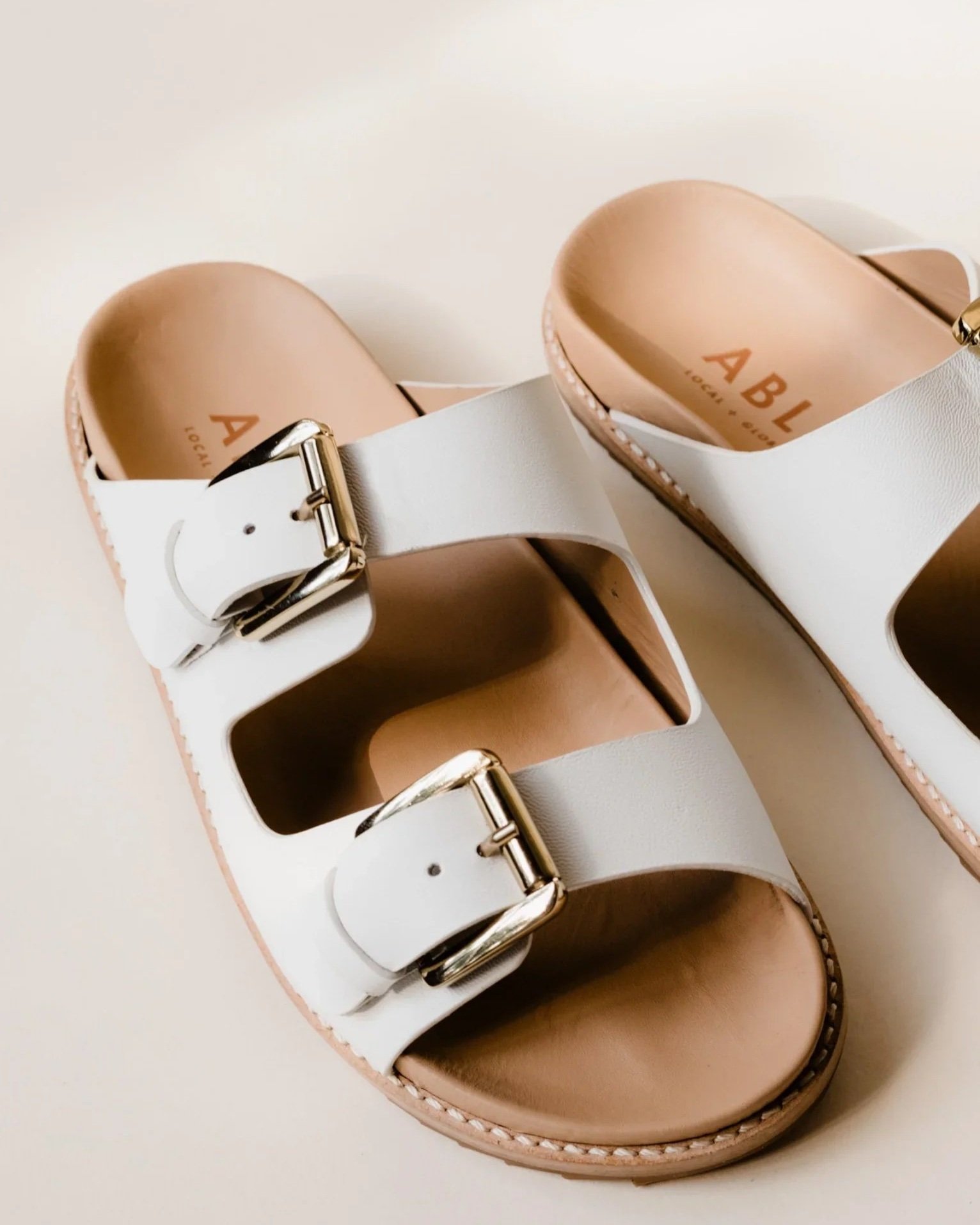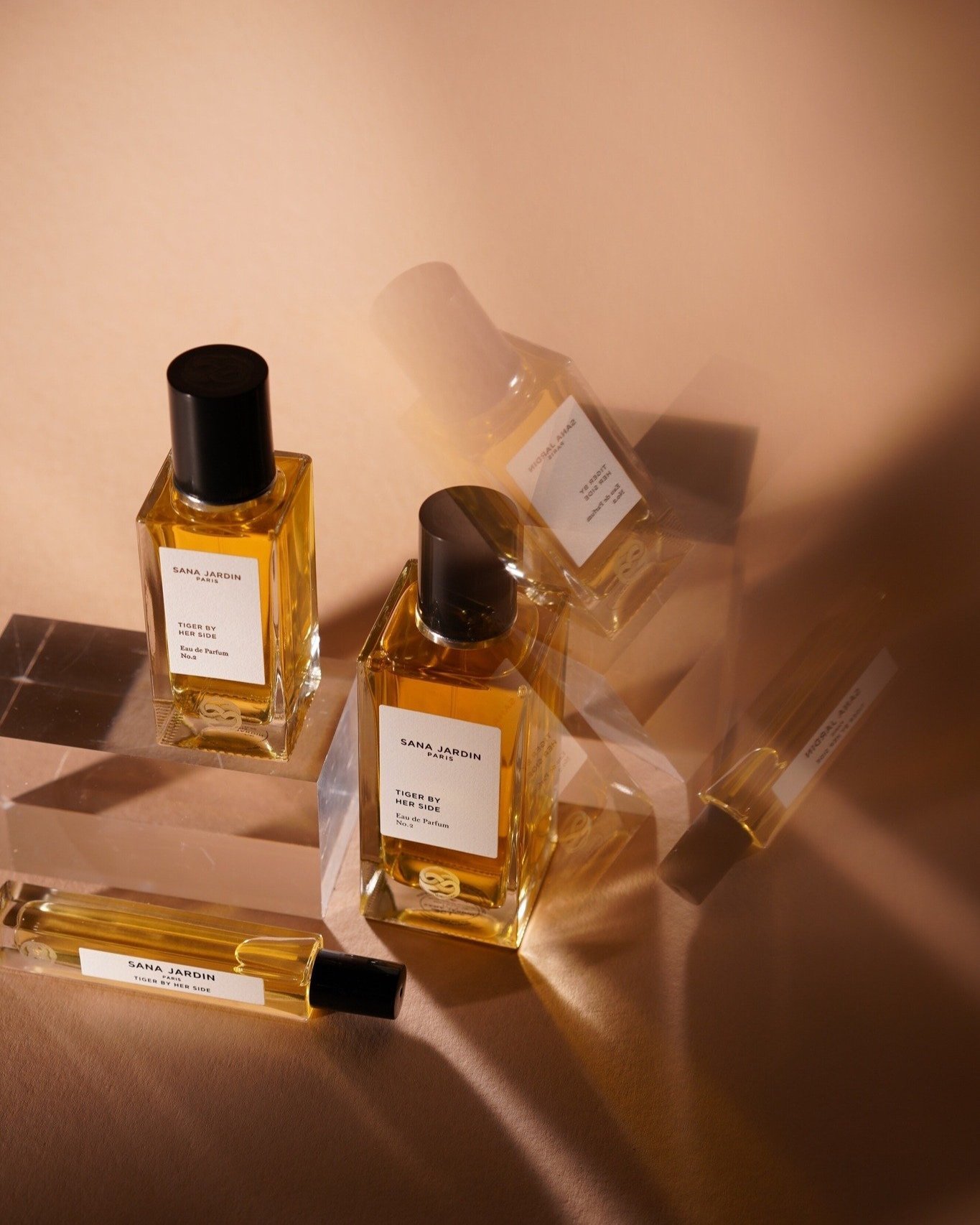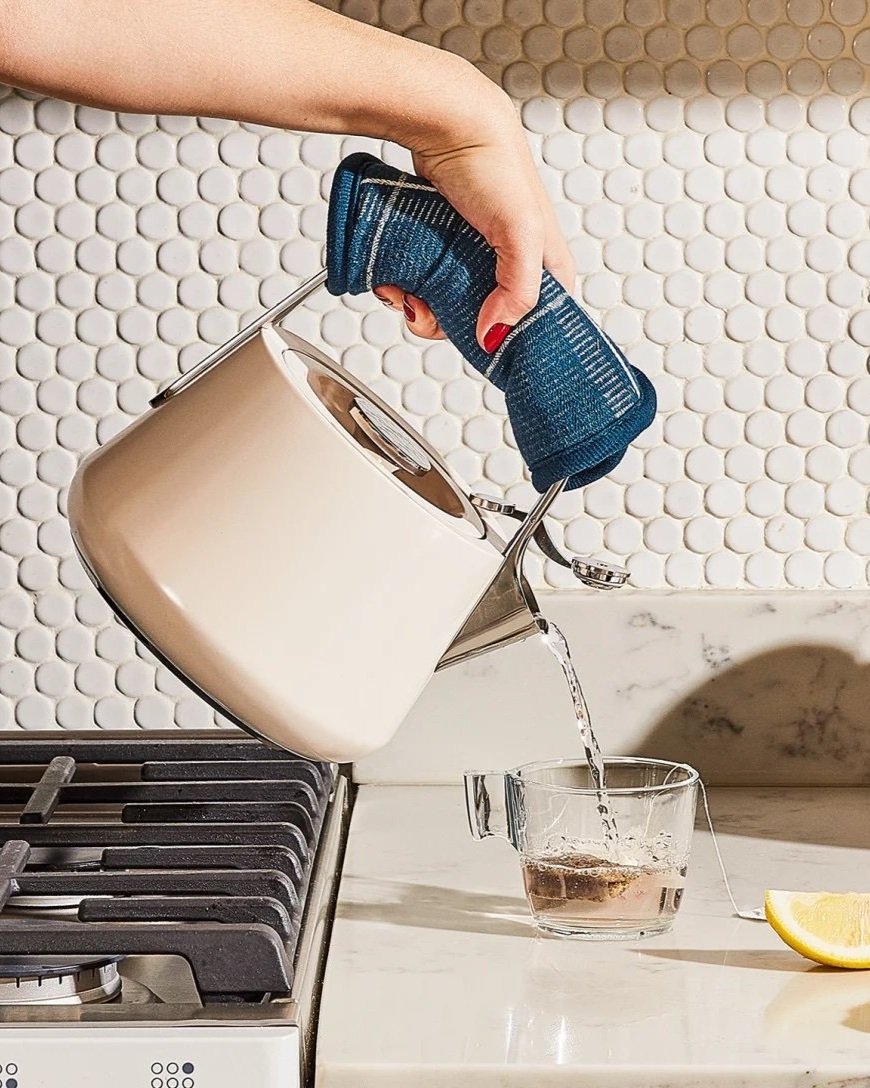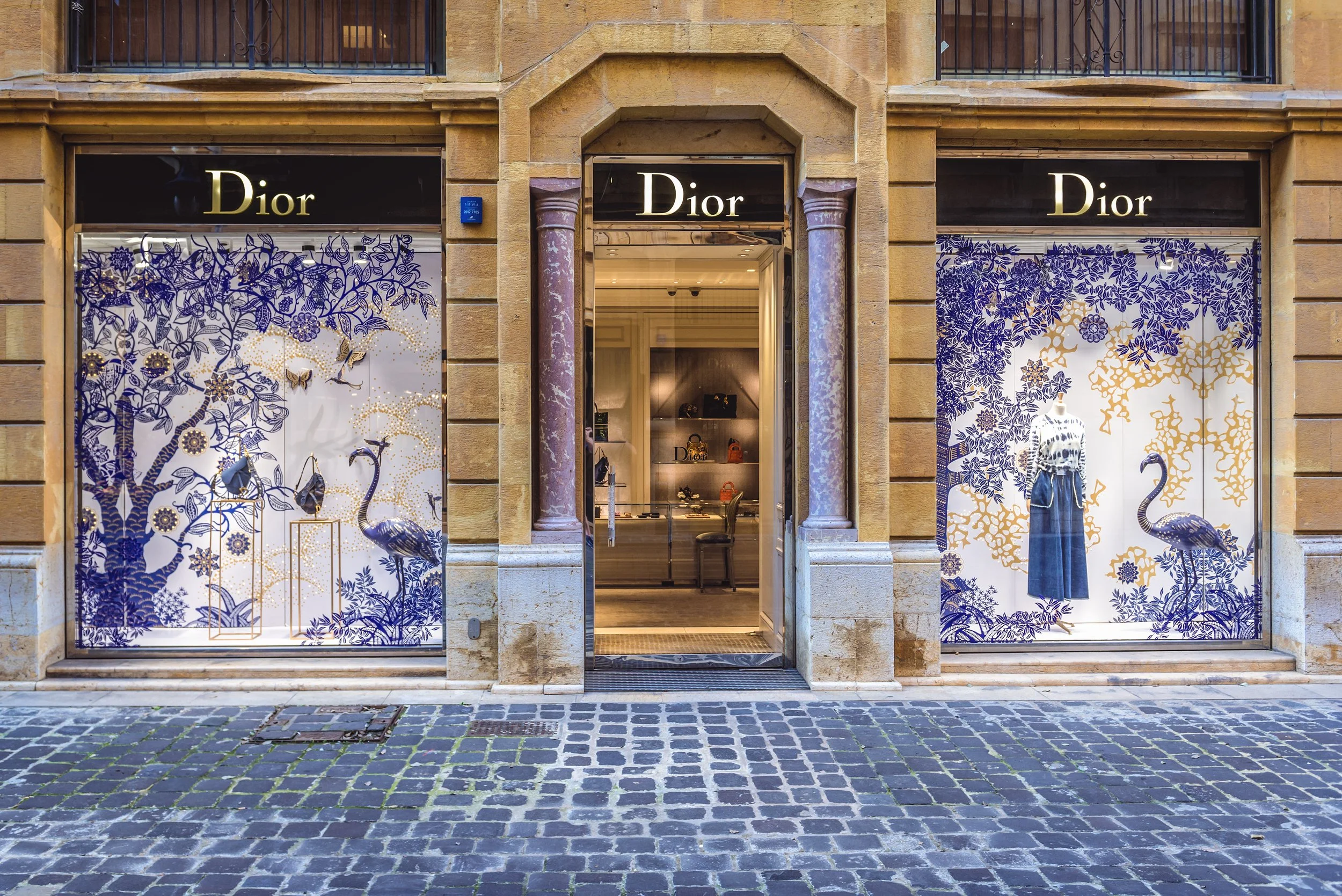Image: Organic Basics
Disclosure: Some of the links below are affiliated; we may earn a small commission if you click through and make a purchase. We only ever add brands & products we truly believe in. Thank you for supporting the brands who are making the fashion industry a better place!
Sustainable Basics clothing brands
What's a closet without your functional collection of basic pieces? Especially if you are interested in building a capsule wardrobe, basics are essential. In addition, most of these brands are pretty affordable, and others have options like AfterPay to help break up payments (not promoting being in debt, but sometimes it eases the burden of supporting a sustainable brand when you want something new for your closet).
What is Considered a 'Basic'?
Basics are like the glue that holds your wardrobe together. They are the functional pieces that mold all your looks. It's your favorite white t-shirt, a pair of denim jeans, or a black blazer. They are practical items you can wear with anything, and they are typically seasonless & timeless.
What Are Sustainable Basics?
Sustainable basics are the foundation of a responsible wardrobe. They are timeless, versatile pieces that can be mixed and matched to create a variety of stylish outfits. These wardrobe essentials are made from sustainable materials, produced ethically, and designed to last.
Organic cotton, linen, hemp, and recycled fabrics are excellent choices for materials. These materials are produced without harmful chemicals, require less water and energy, and have a lower environmental impact. Additionally, sustainable basics should be produced in factories that provide employees with fair wages and safe working conditions.
Essential Sustainable Basics for Your Wardrobe
When building a sustainable wardrobe, several essential basics should be the foundation of your collection. These versatile and timeless pieces can be dressed up or down, depending on the occasion. Here are some key sustainable basics to consider:
1. Organic Cotton T-Shirts: Organic cotton is grown without toxic pesticides or synthetic fertilizers, making it a more sustainable alternative to conventional cotton. Look for t-shirts in classic colors that can be paired with jeans, skirts, or layered under blazers.
2. Ethically Produced Denim: Denim is a staple in many wardrobes, but the production process is often harmful to the environment and workers. Look for organic or recycled denim brands.
3. Linen Shirts and Dresses: Linen is a lightweight, breathable fabric perfect for warm weather. Look for linen shirts in neutral colors or linen dresses that can be worn independently or layered with other pieces.
4. Versatile Knitwear: Invest in quality knitwear made from sustainable materials like organic cotton or wool. Opt for neutral colors and classic silhouettes that can be worn year-round.
Remember, focusing on quality over quantity is the key to building a sustainable wardrobe. Invest in pieces that you love and will wear for years to come.
Now, Our Top Picks for Sustainable Basics Clothing Brands:
1. PAKA
Founded in Peru, PAKA has created a natural, sustainable clothing line for those who love the outdoors.They believe using eco-friendly materials like their super soft Royal Alpaca that can connect consumers more to nature and sustainably support small communities. Their products are fully traceable from the fiber source, each product features a QR that shows the consumer the farm where the fiber was harvested. Even the dyes are environmentally friendly (OEKO-TEX & GOTS certified), and the packaging is biodegradable. We love that PAKA is a certified B-Corp that works hard to create a better, sustainable future for the fashion industry!
2. tentree
This sustainable fashion brand makes basic clothing for men, women, and kids and gives back to the planet. So far, they have planted over 43 MILLION trees! tentree is a B Corp and climate-neutral company that gets its name from its pledge to plant ten trees for every purchase. In addition, their sustainable essentials are created with the smallest possible environmental footprint, using eco-friendly materials like TENCEL, organic cotton, hemp, and recycled polyester.
3. Pact
PACT started with just underwear but has since expanded its collection to include a wide range of basic apparel for the whole family. Everything is made from certified GOTS organic cotton in Fair Trade-certified factories, dyed with non-toxic chemicals, and packaged in recycled and compostable materials. Plus, they have carbon offset shipping and a donation program to help circulate your used clothes when you’re finished with them.
code: SUSTAINABLYCHIC for 15% off
4. Made Trade
From sweatshirts to t-shirt dresses, Made Trade has a wide range of brands that make fantastic sustainable basics.
While shopping through the collection, you can learn all about the values of each piece. Is it Fair Trade? Is it Made in the USA? Is it POC owned?
It’s genuinely a different experience, unlike anything else you find online.
Made Trade is always one of my first suggestions to those who are curating their homes & closets!
5. Carve Designs
As a company born at the beach and endlessly inspired by the outdoors, Carve prides itself on crafting fashion-forward everyday designs made mostly from sustainable materials. From their swimwear made from recycled bottles to their tops, jeans, and dresses, Carve is an excellent brand for wardrobe staples.
The women of Carve Designs set out to push boundaries and prove that functionality, sustainability, and fashion go hand in hand, and they are reaching that goal with every design!
6. Outerknown
Outerknown is a fashion brand creating sustainable clothing for men, women and children. The company works with three partners that are certified through Fair Trade USA. Plus, Outerknown is fully accredited by the Fair Labor Association.
Additionally, 90% of their garments are made from recycled, organic, and ‘regenerative’ materials.
7. Organic Basics
If you are looking for plain tees, socks and undies, this is your place! They even have a range for men so you can stock up for your man, as well. I love using their bras for nursing since they are so easy to slide off the shoulder. Very comfy! Organic Basics uses several different eco-friendly fibers to create their collections, and while their prices aren’t super low, they are worth it because of the quality! I’ve been wearing their underwear and leggings for years, and they are wonderful.
8. Encircled
Encircled is a Canadian-based sustainable clothing brand that creates for the stylish traveler {& your everyday busy body!}. They want you to be able to travel light while looking effortless at the same time. Imagine being able to put all your essentials into one carry-on.
Most of Encircled's garments can be worn in more than one way. That means more versatility in a smaller closet. Capsule wardrobes can make life much easier, and having an Encircled 'uniform' makes it easy!
9. Mate the Label
MATE is a female-founded company producing “Clean Essentials” made sustainably in Los Angeles with non-toxic, natural, and organic materials. MATE uses several types of organic cotton, including thermal, terry, jersey, and stretch, to create a wide range of products for different activities and climates. The MATE supply chain is localized to a ten-mile radius, with all products being cut, sewn, dyed, packaged, and shipped from their LA factory, drastically reducing their carbon footprint.
10. Wallis Evera
Workwear brand Wallis Evera specializes in using custom-woven, modern hemp blend fabrics to create comfortable, classic pieces for the office. Based in Vancouver, Canada, it is a minority- and woman-owned small business that ships worldwide and focuses on small-batch, local production, and sustainable design.
code: SUSTAINABLYCHIC15 for 15% off your entire purchase
11. Miakoda
Miakoda (which means power of the moon) is a women-owned slow fashion brand creating elevated + comfy basics for everyday wear. Founded in 2013 by sister duo Julia & Laura Ahrens, everything Miakoda creates is ultra-soft, ultra-sustainable, size-inclusive (XS - 4XL), and produced in small batches using organic and sustainable materials. Julia actively engages with her factory and the humans who bring her designs to life. All are paid a living wage, and ethical practices are the foundation upon which Miakoda was built. Miakoda also has a Pre-Loved site for reselling Miakoda pieces you're no longer reaching for, as a circular economy is incredibly important to them.
12. Lâcher Prise
Lâcher Prise is not just another fashion brand but a movement towards mindful living and ethical fashion. The brand offers a unique blend of clothing that harmoniously fuses comfort, sophistication, and mindfulness. Crafted from irresistibly soft, certified, sustainably harvested plant-based materials, their garments beckon you to embrace a profound sense of liberation, embodying the concept of 'letting go.' Their commitment to sustainability goes deeper. With each purchase, they plant trees and give back to nature what was given to them to produce their addictive fabric.
13. Colorful Standard
This will be your stop if you are looking for a sustainable alternative to American Apparel! Each of their basic pieces comes in many colors, so there is no doubt you will find the color you’re looking for! In addition, colorful Standard uses organic cotton to make their entire collection and produces it ethically in Portugal. Their dyes are also Oeko-Tex® certified dyed and PETA approved, and they create for both & women!
14. Pareto
Pareto was founded in 2020 by Jessica Landzberg and Olivia Putterman – two women who, since college, spent time endlessly agonizing over what to wear in their closets. After a decade of frustration and dozens of conversations with other women, Pareto was born out of their Chicago apartment closet. Since its inception, Pareto has made it their mission to make getting dressed the easiest part of the day by offering quality, sustainable wardrobe essentials to fit any person’s style. All their pieces are manufactured in the United States under ethical work conditions.
Tips for Building a Stylish and Sustainable Wardrobe
Building a stylish and sustainable wardrobe doesn't have to be overwhelming. Here are some tips to help you on your journey:
1. Assess Your Current Wardrobe: Take stock of what you already have and identify any gaps. This will help you make more intentional purchases and avoid duplicating items.
2. Research Sustainable Brands: Take the time to research and discover new sustainable brands. Look for reviews, certifications, and transparency in their practices. We have lots of information about hundreds of brands on our website!
3. Opt for Timeless Pieces: Choose classic styles and neutral colors that can be mixed and matched. This will ensure that your wardrobe remains versatile and timeless.
4. Embrace Secondhand and Vintage: Thrifting and shopping vintage are excellent ways to reduce waste and find unique pieces. Explore local thrift stores, online marketplaces, and vintage shops.
5. Practice Mindful Shopping: Before purchasing, ask yourself if you truly need the item and if it aligns with your values. Consider the materials, production practices, and the longevity of the garment.
Remember, building a sustainable wardrobe is a journey. Let's start small and gradually replace items as needed. The most important thing is to make conscious choices that align with your values.
MAKE SURE TO PIN THE PHOTO BELOW TO SAVE THIS POST FOR LATER!
WANT MORE SUSTAINABLE BRANDS? VISIT OUR BRAND DIRECTORY!
Our Brand Directory is home to hundreds of sustainable brands, from makeup to cleaning supplies, from underwear to shoes. We have broken everything down by category for easy shopping, along with discount codes unique to Sustainably Chic viewers.



